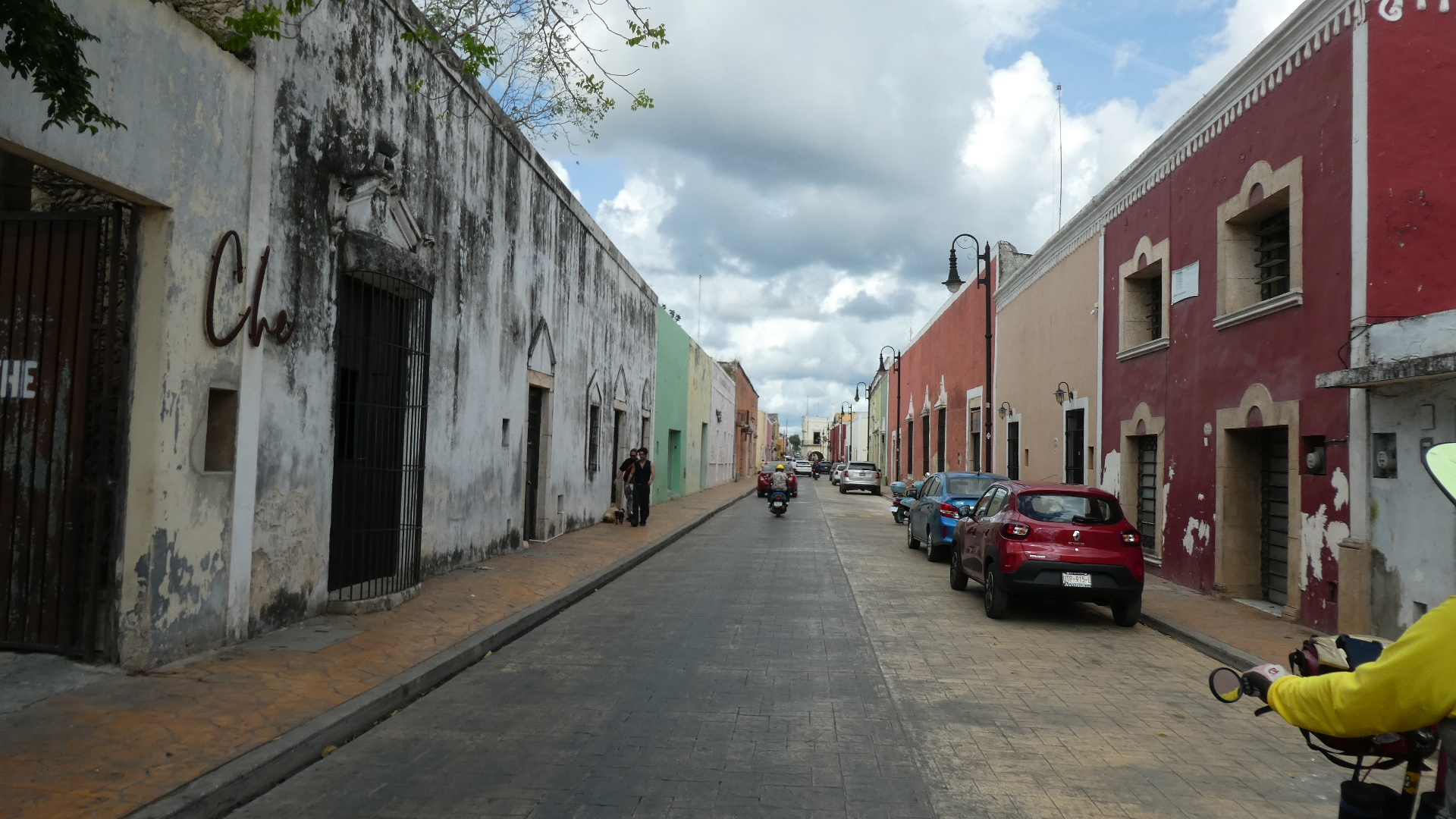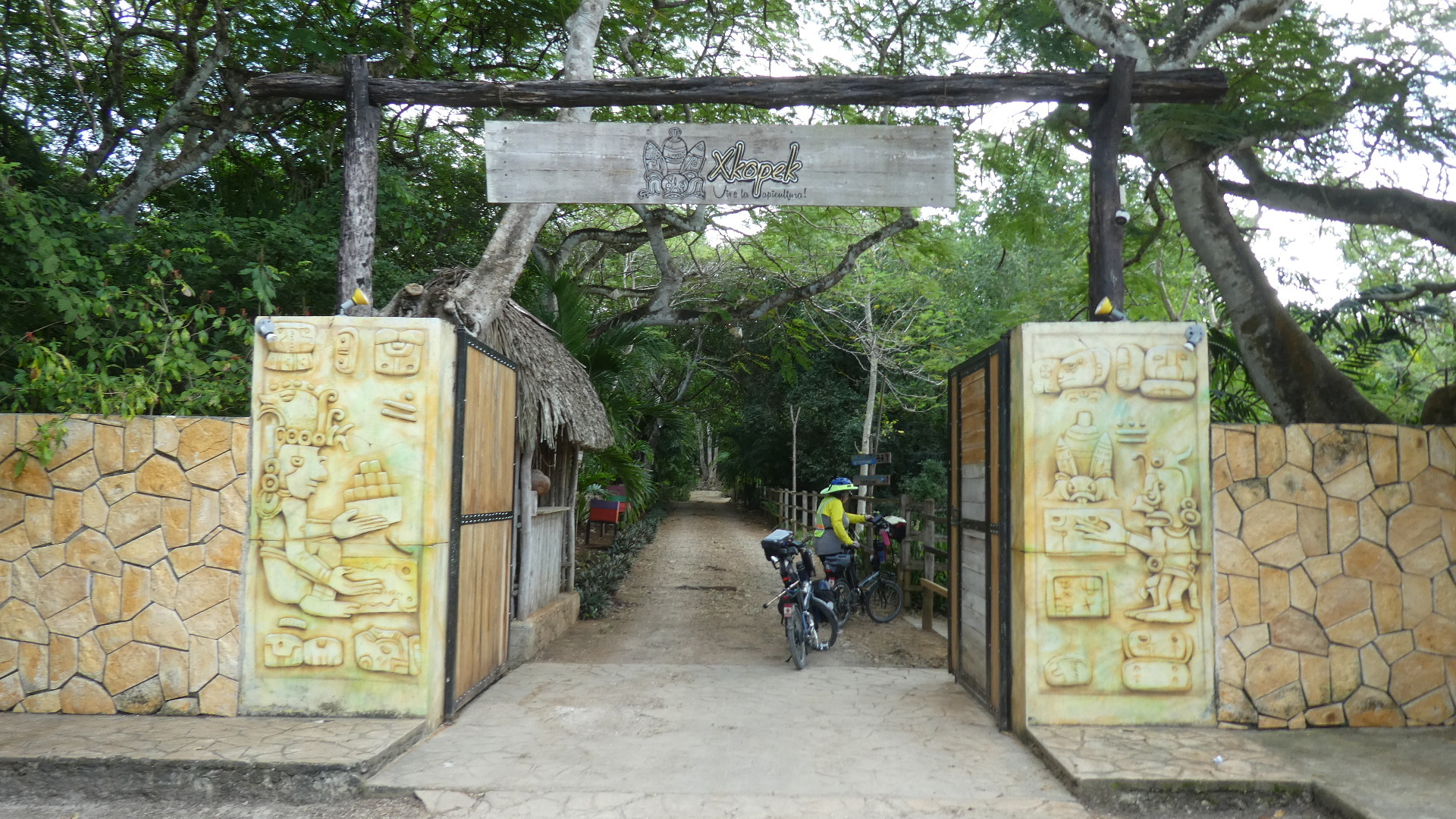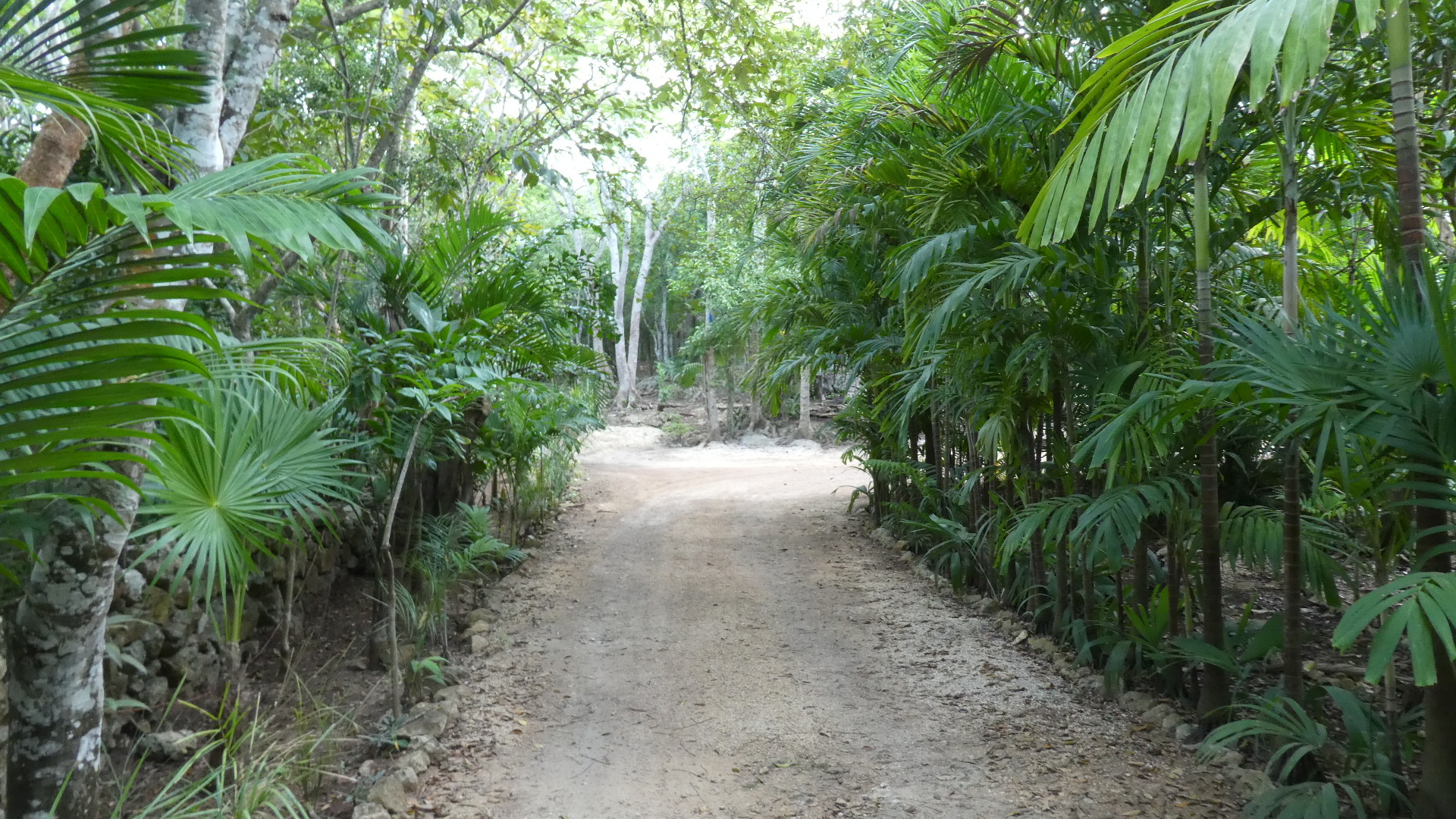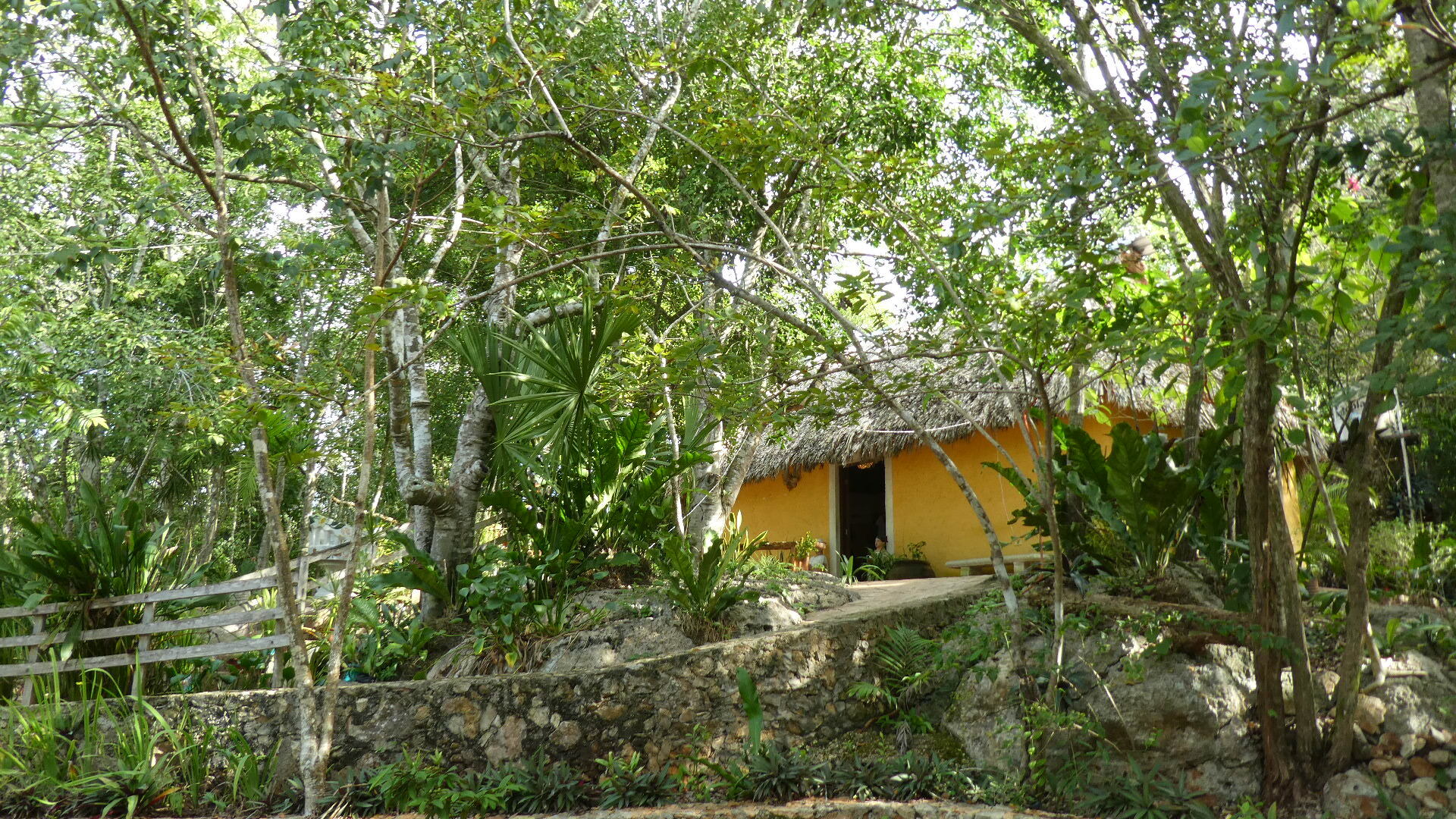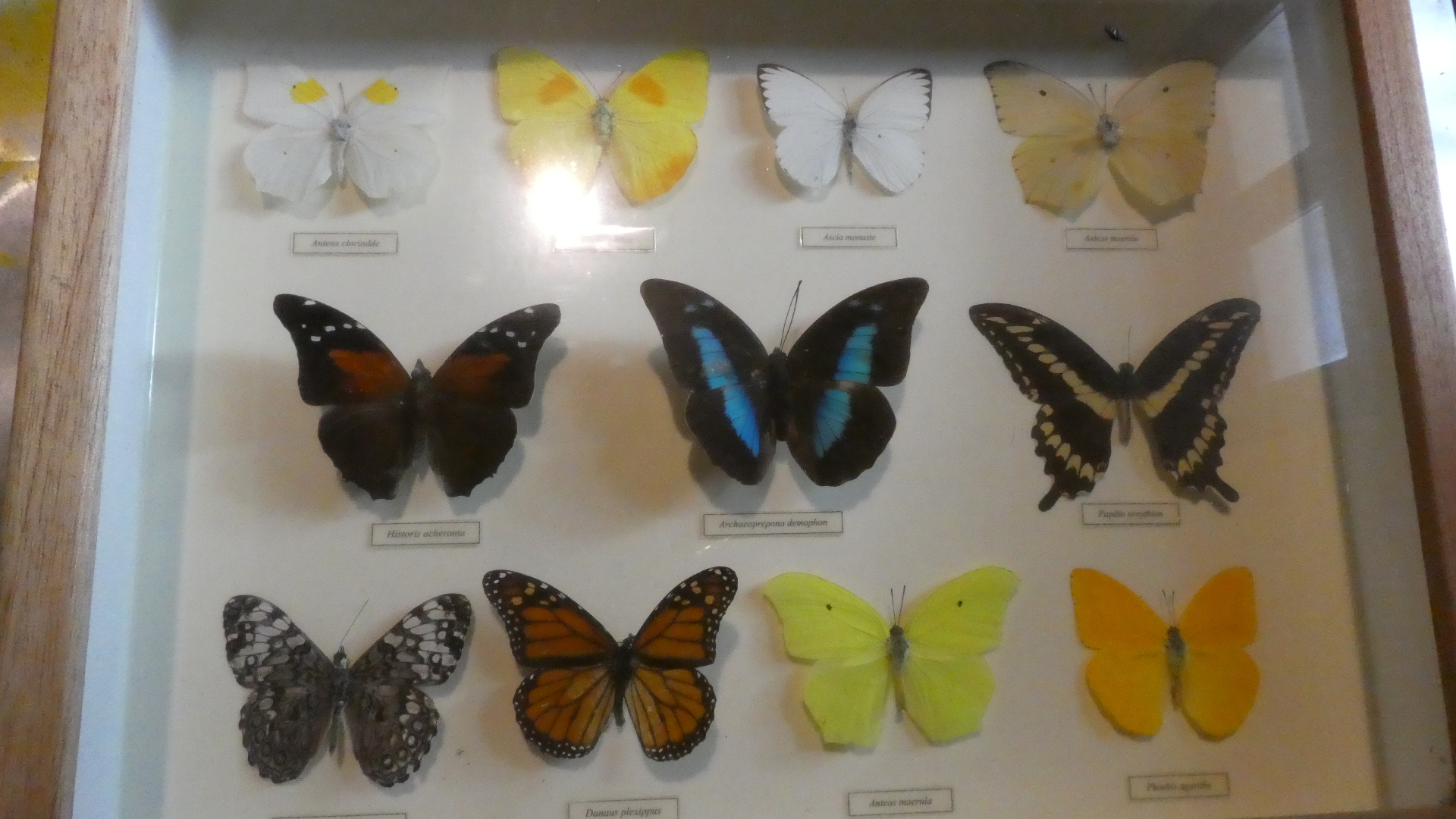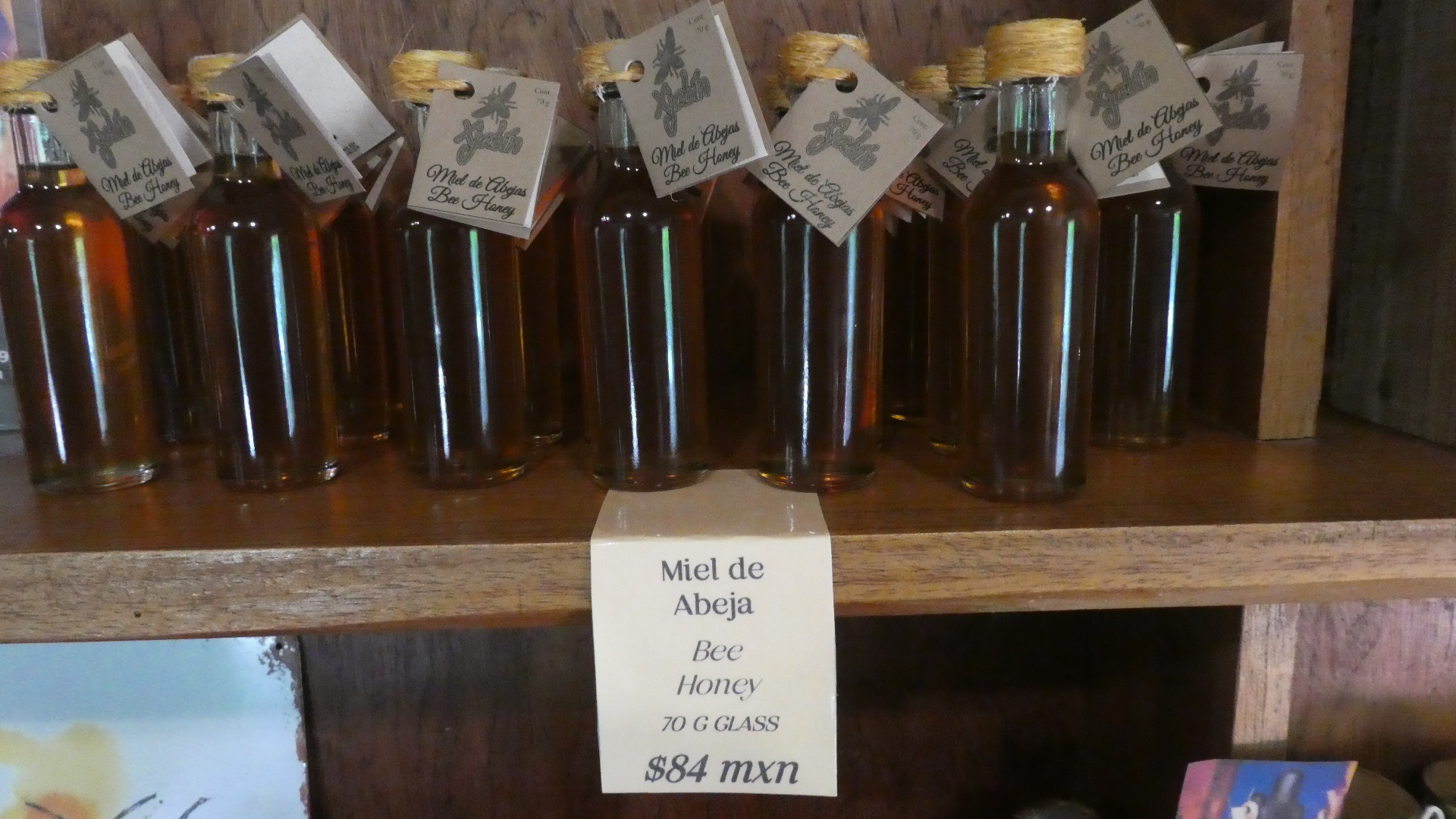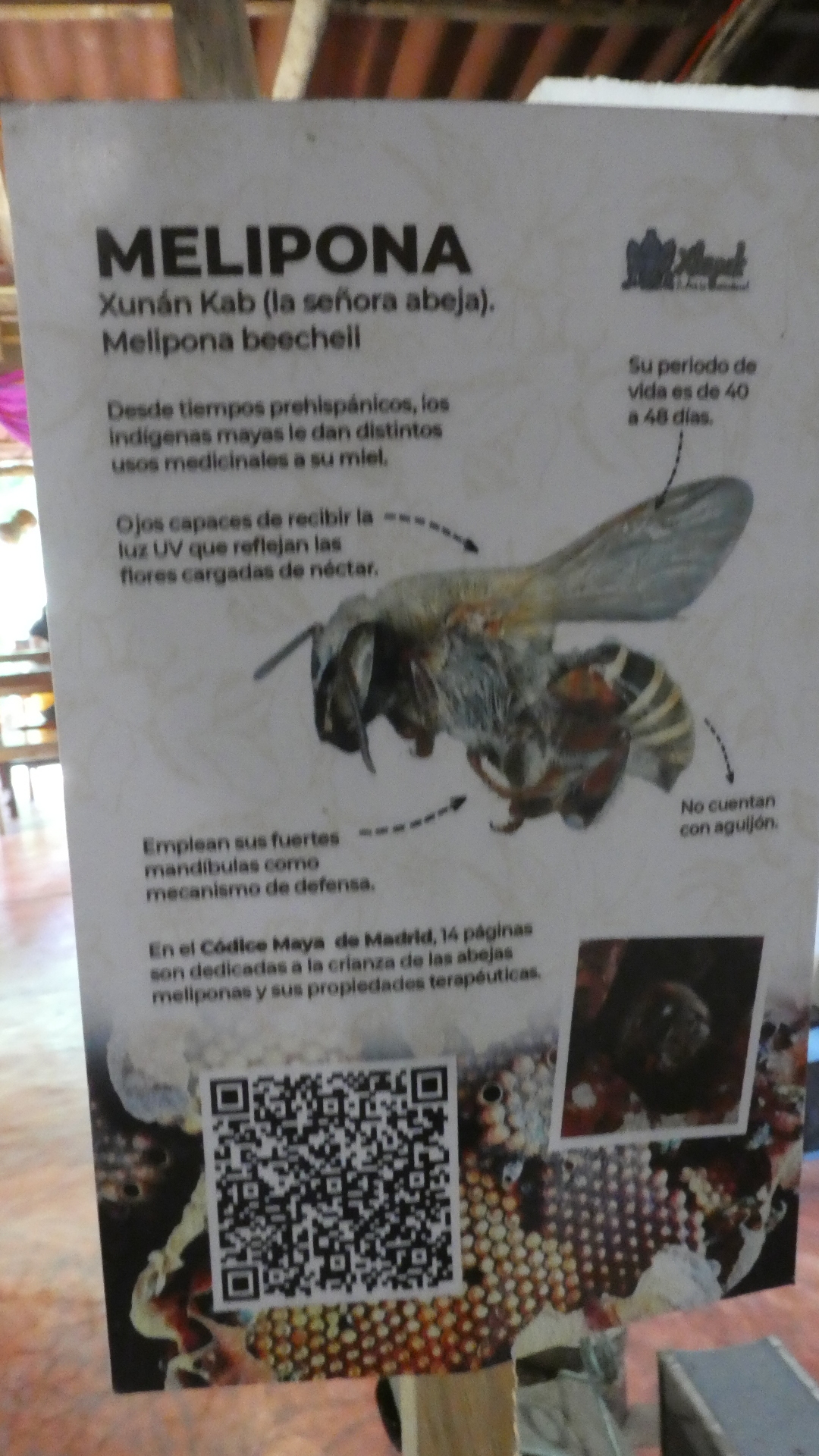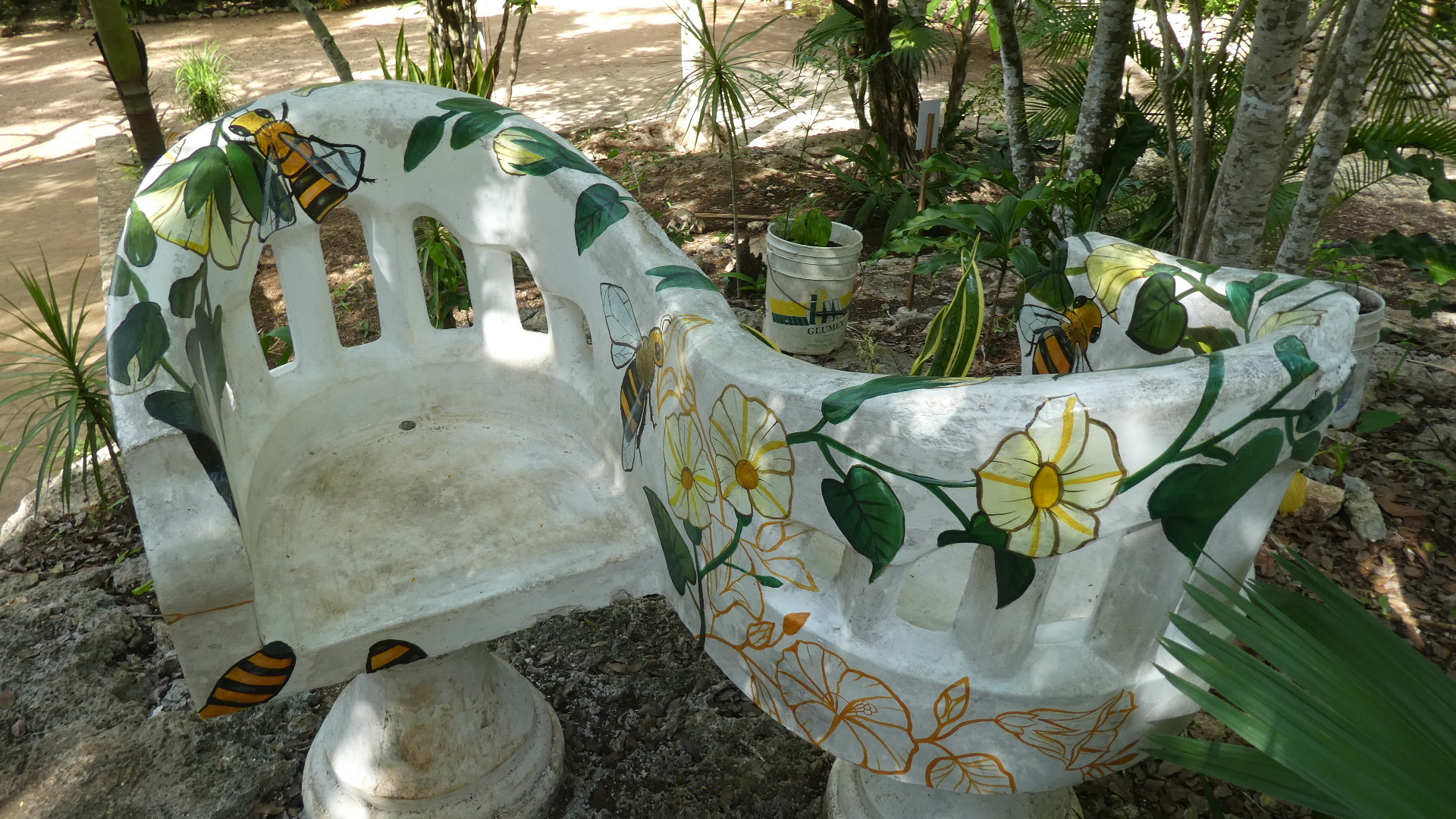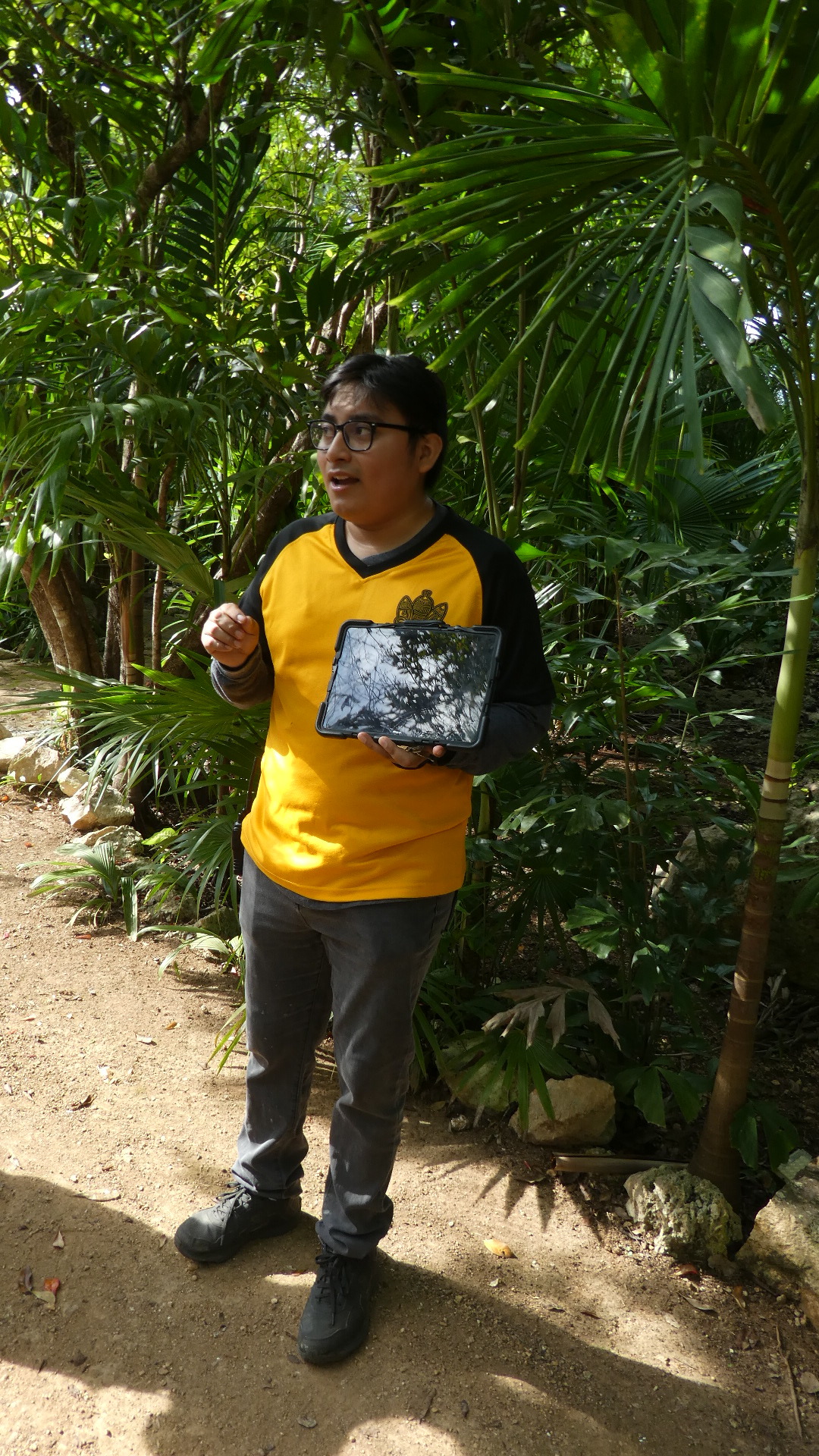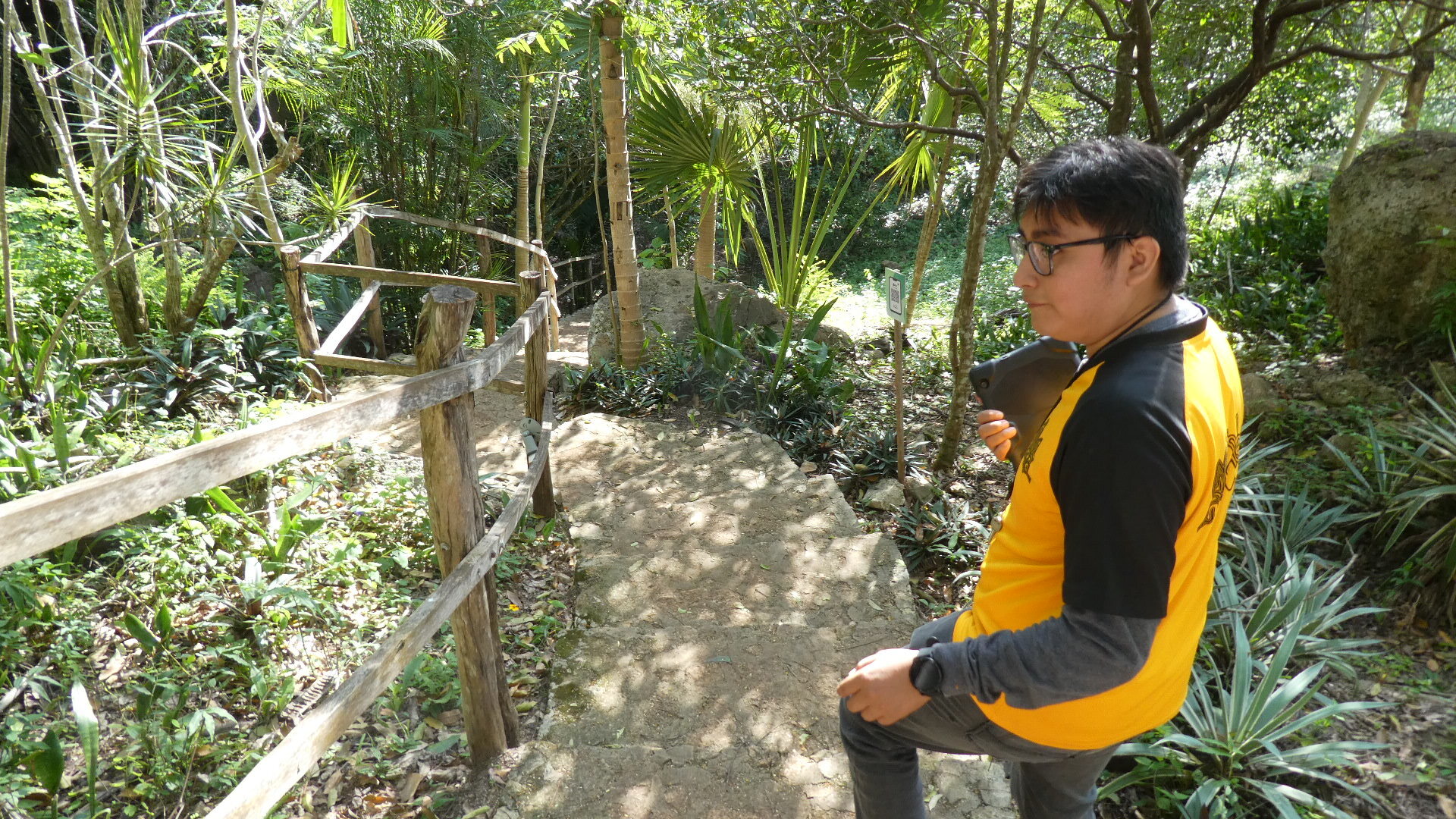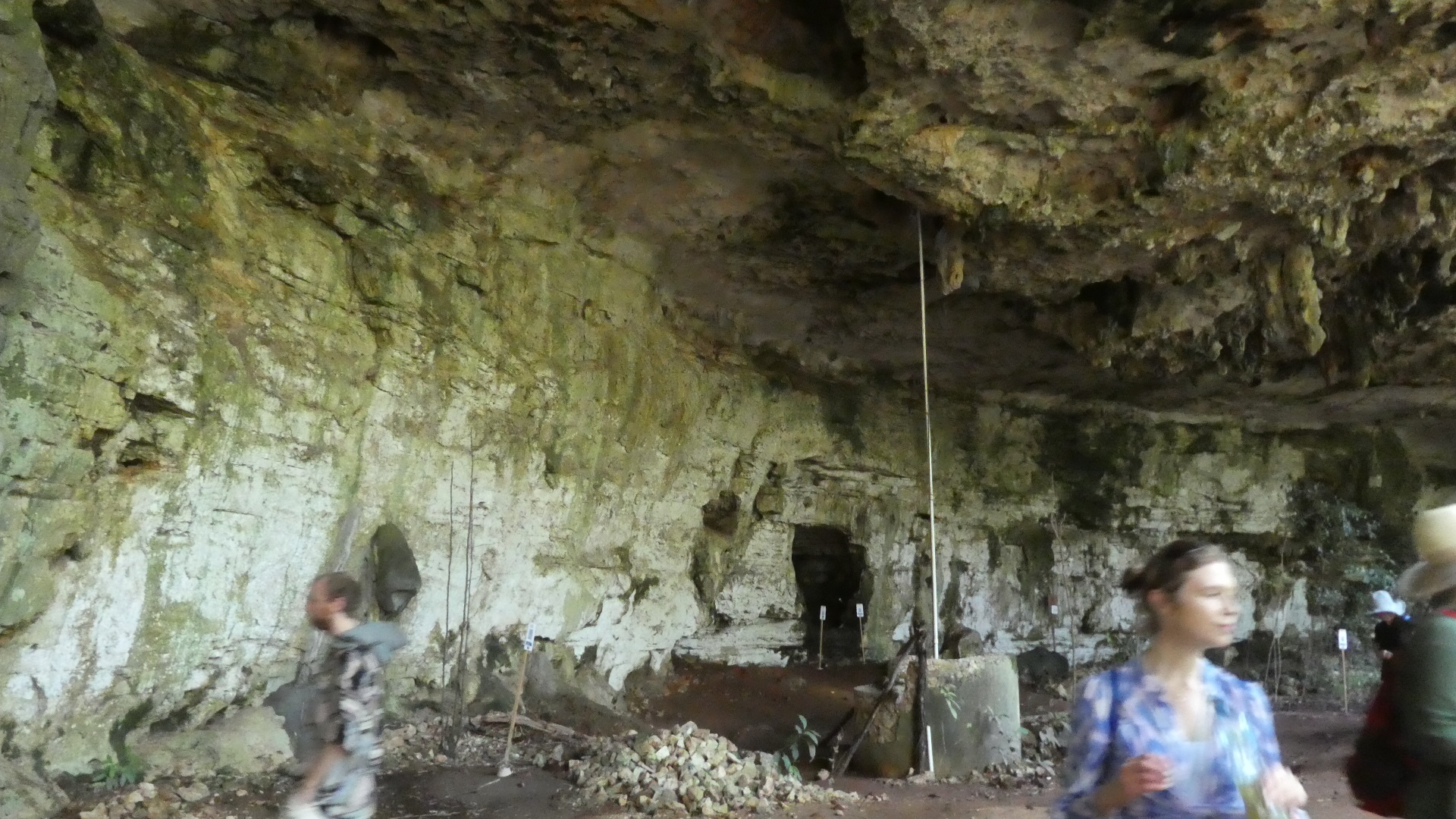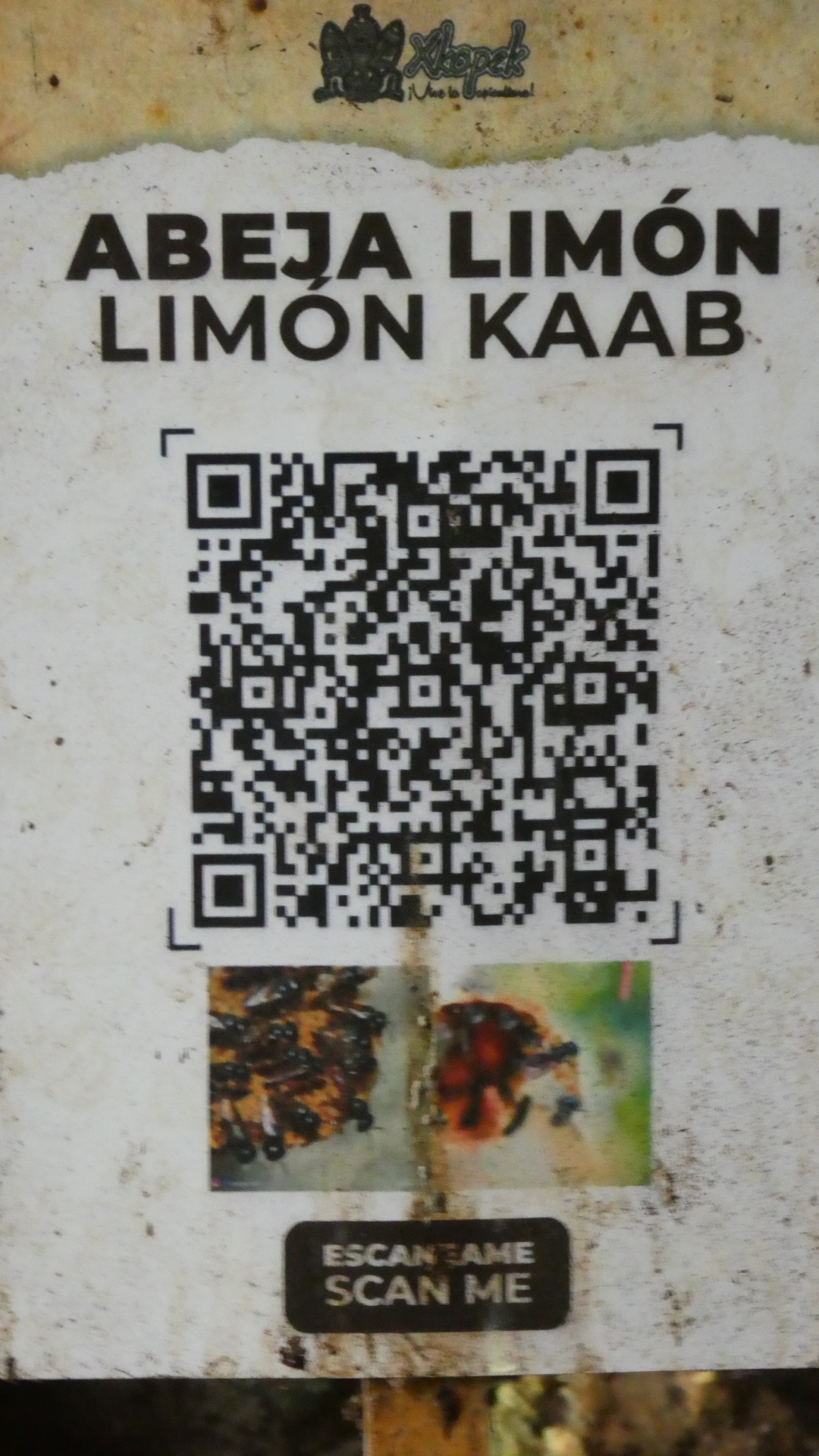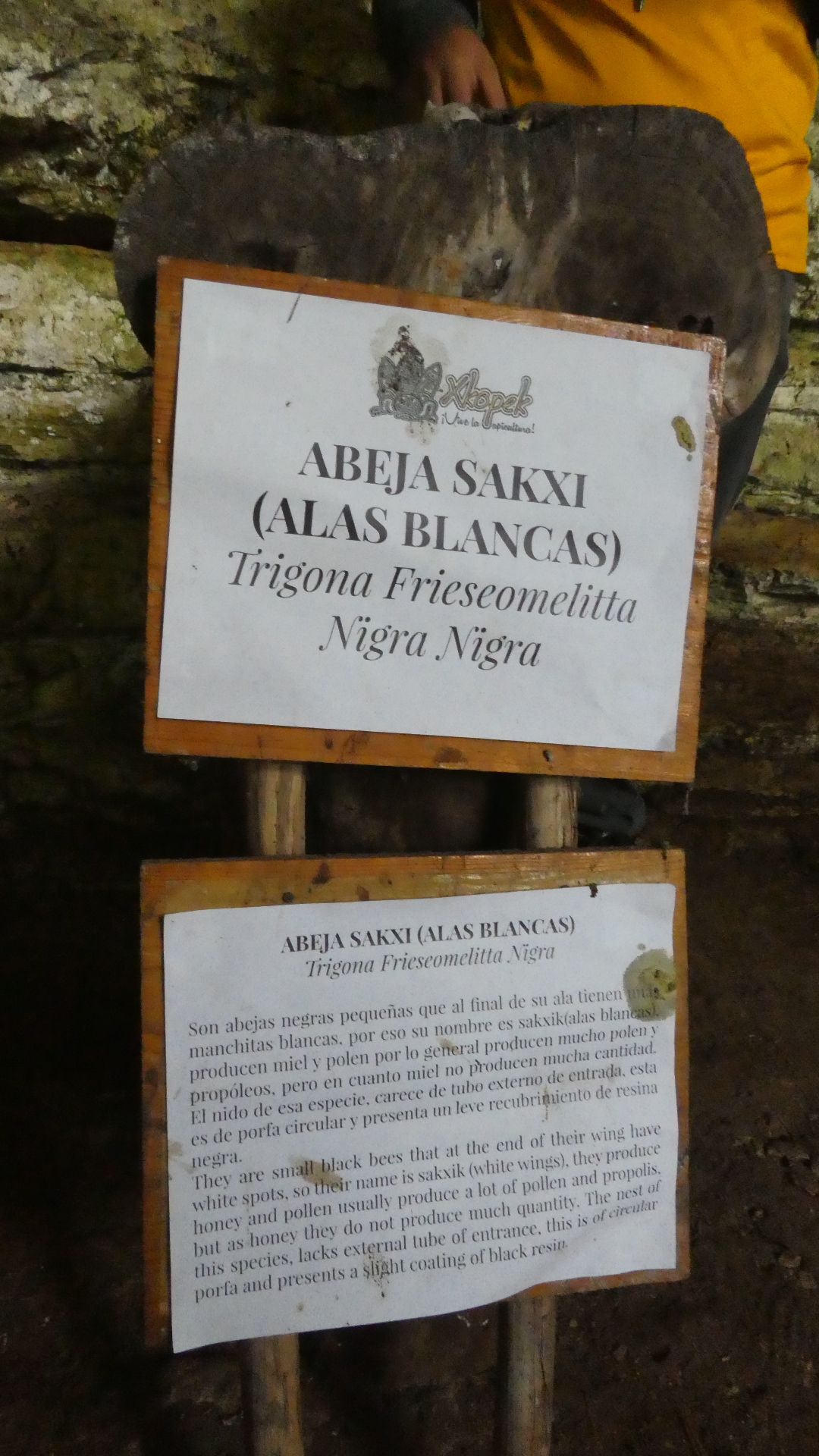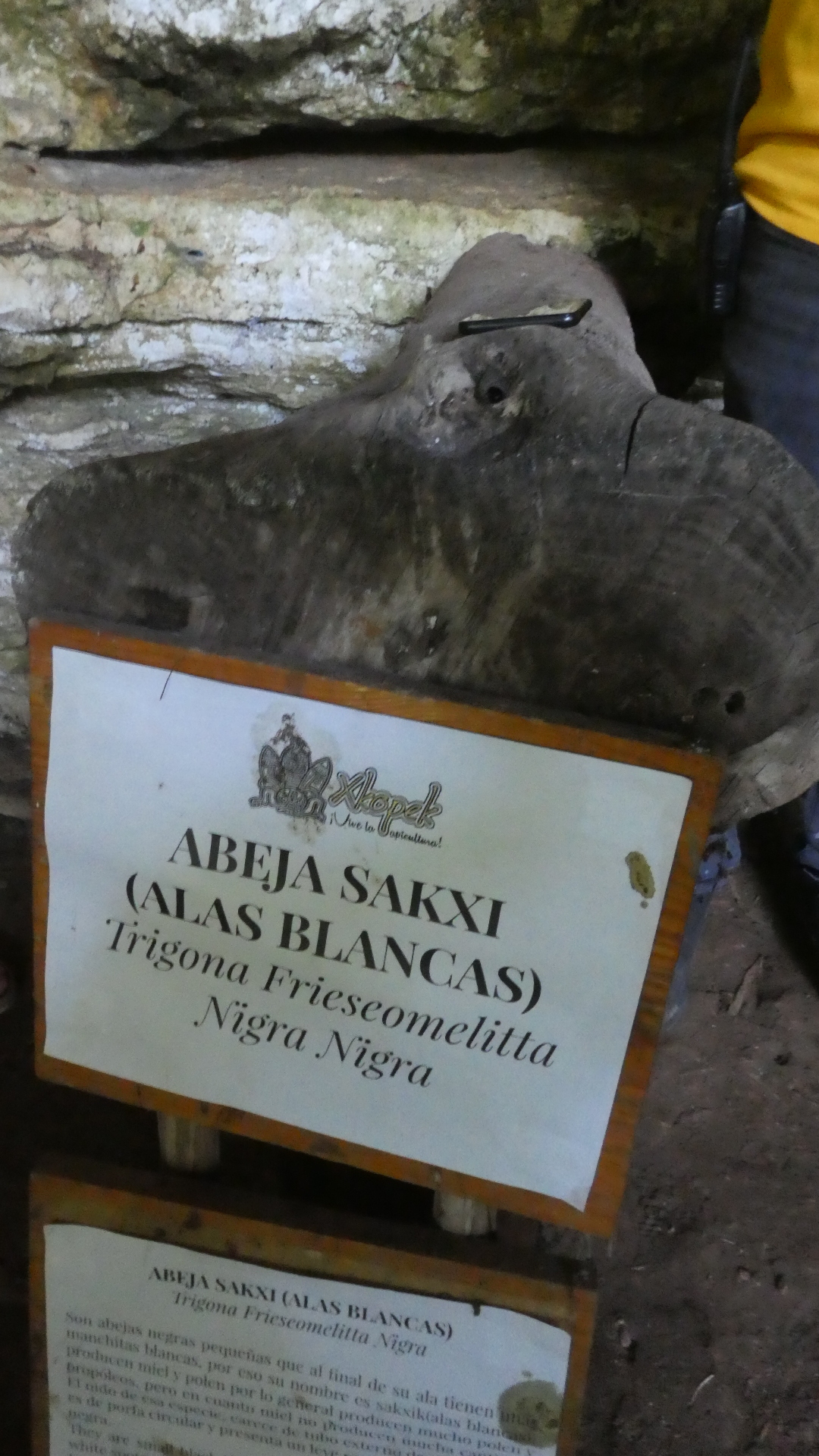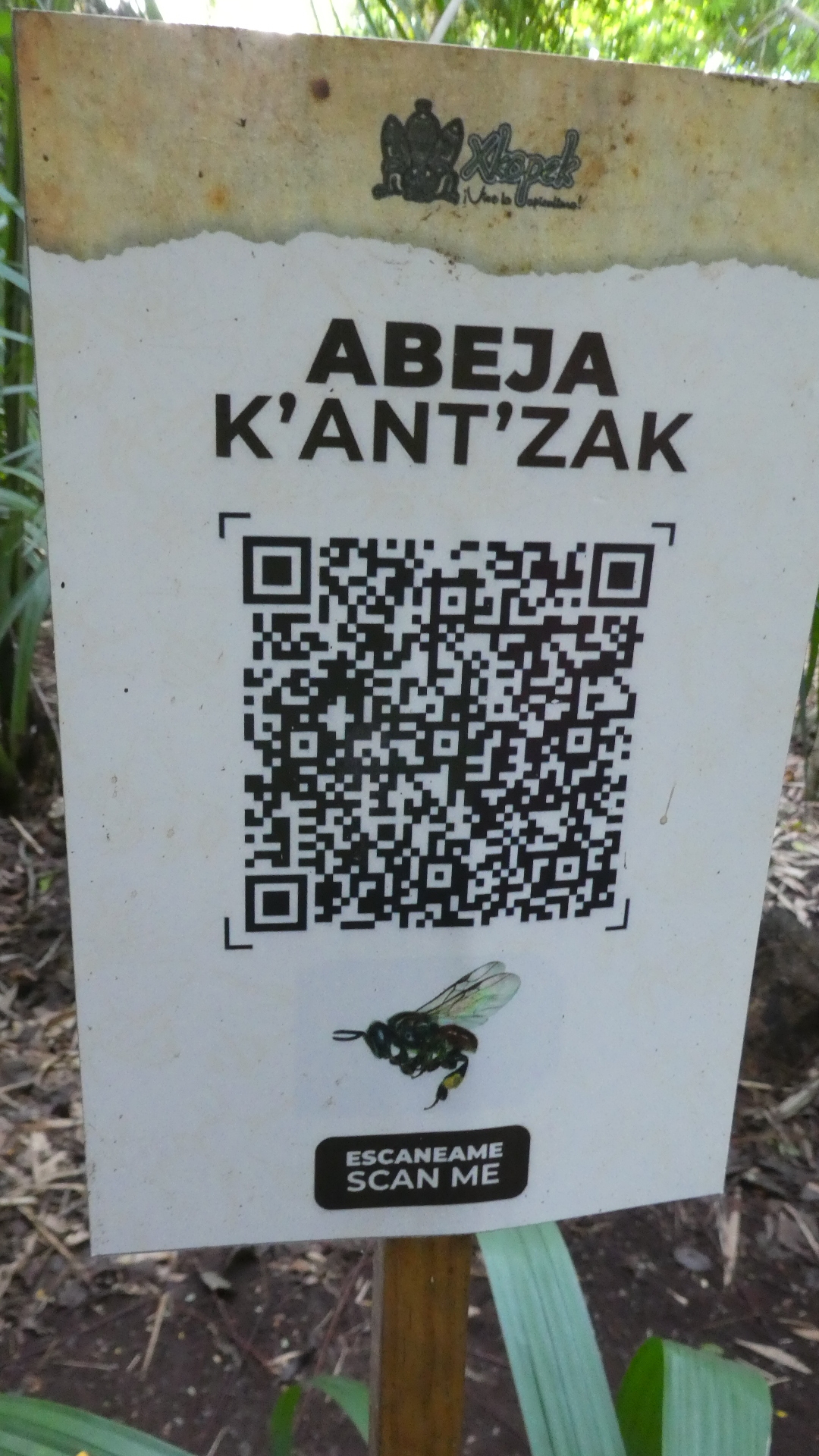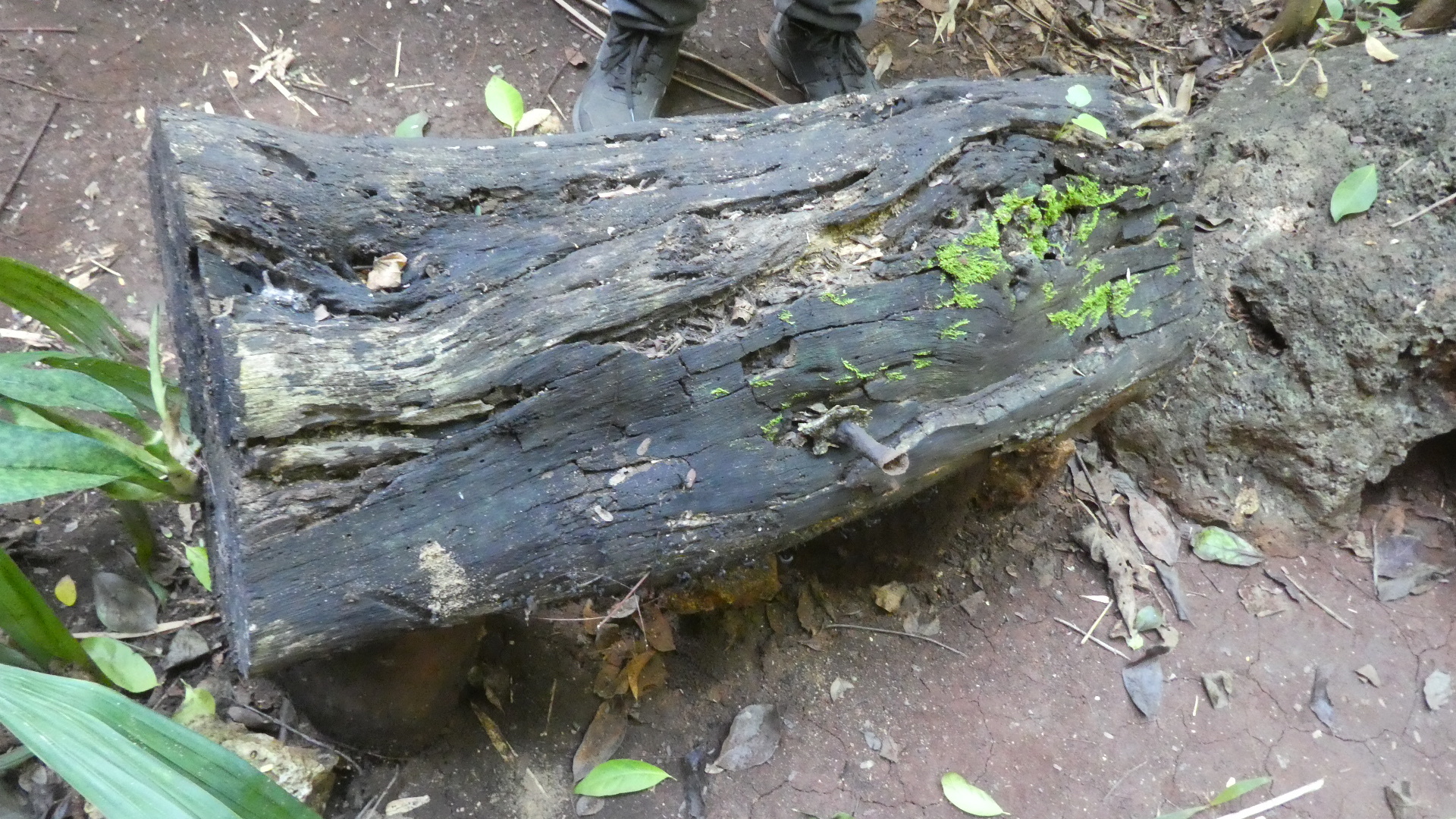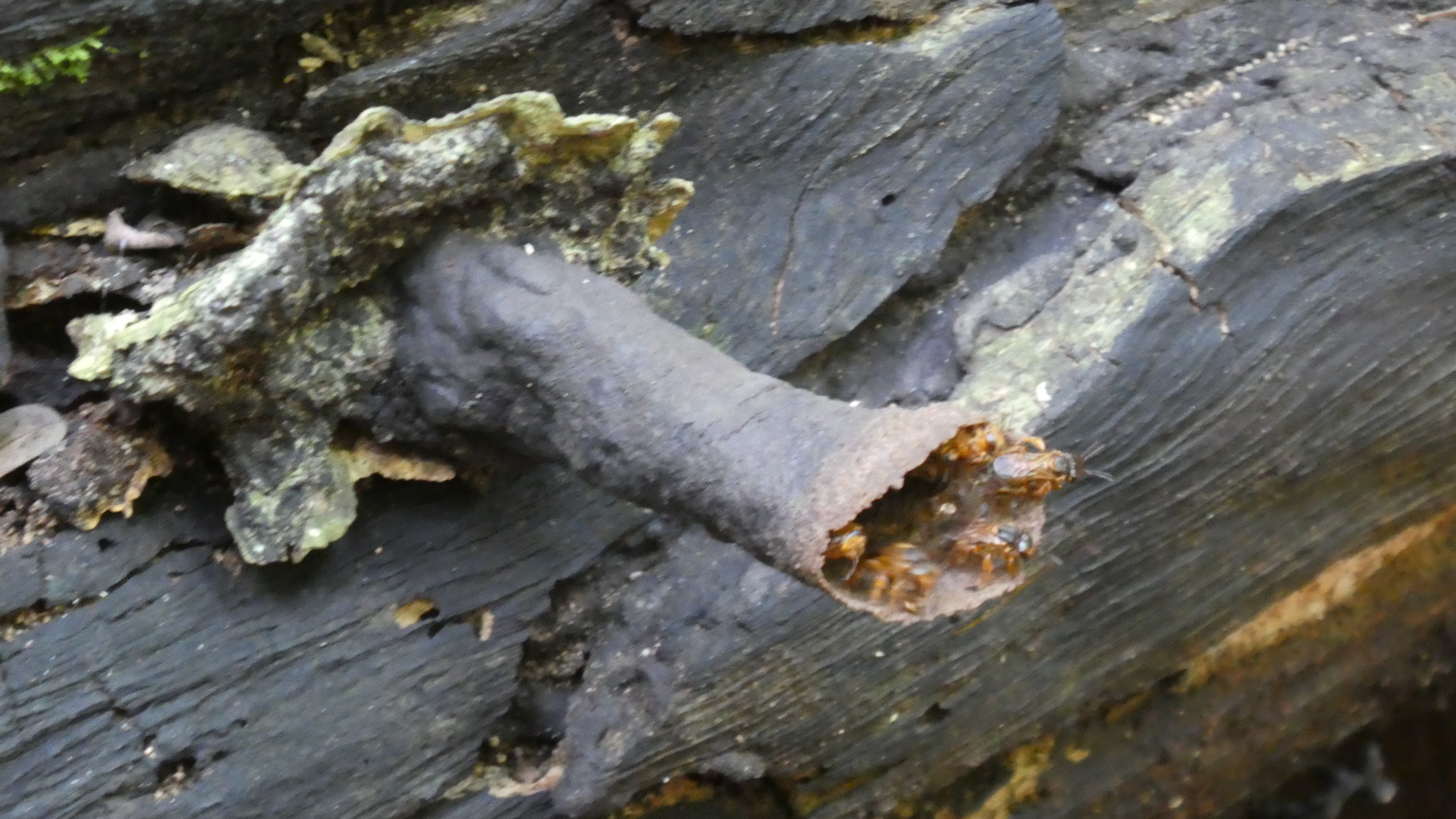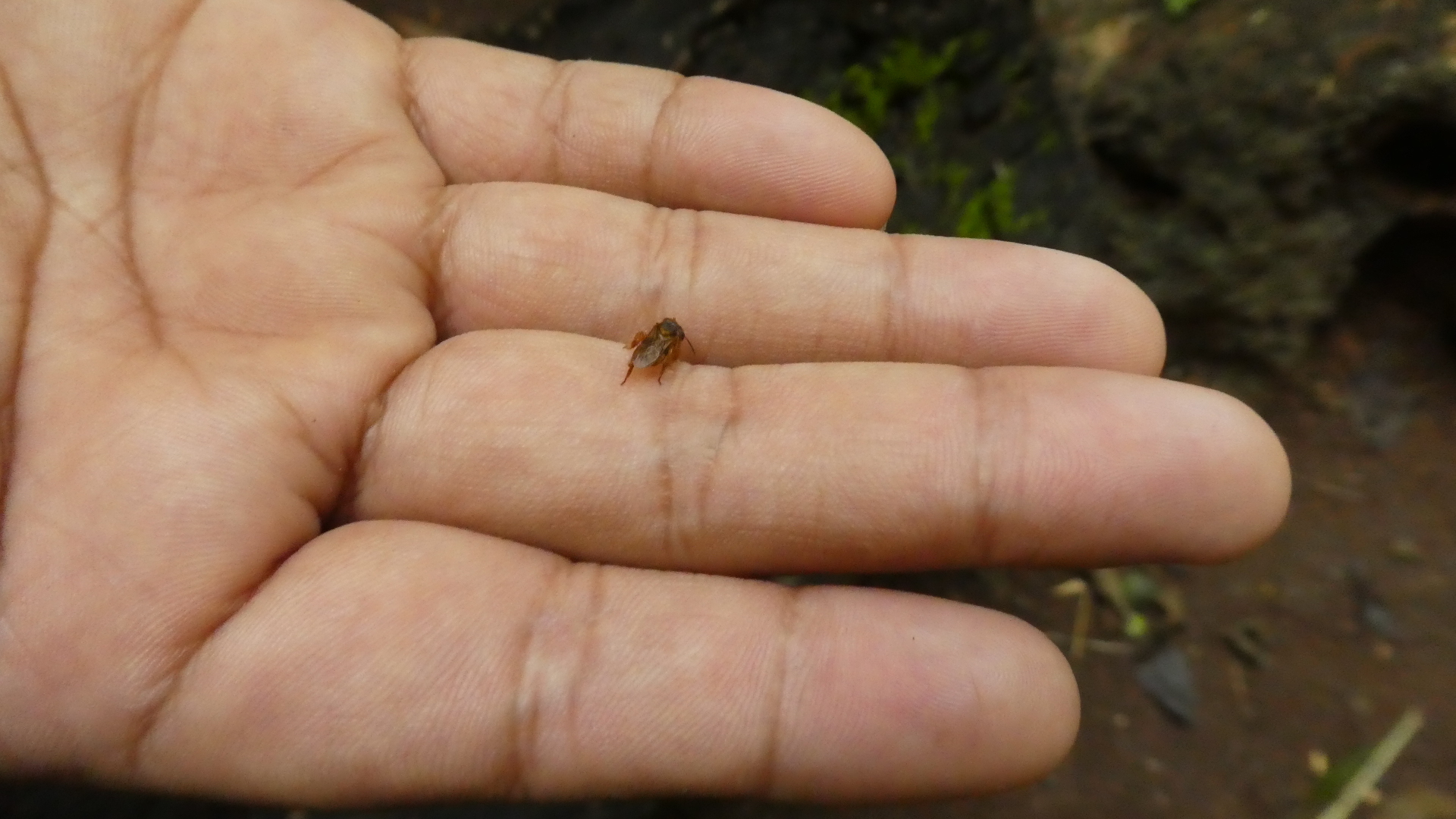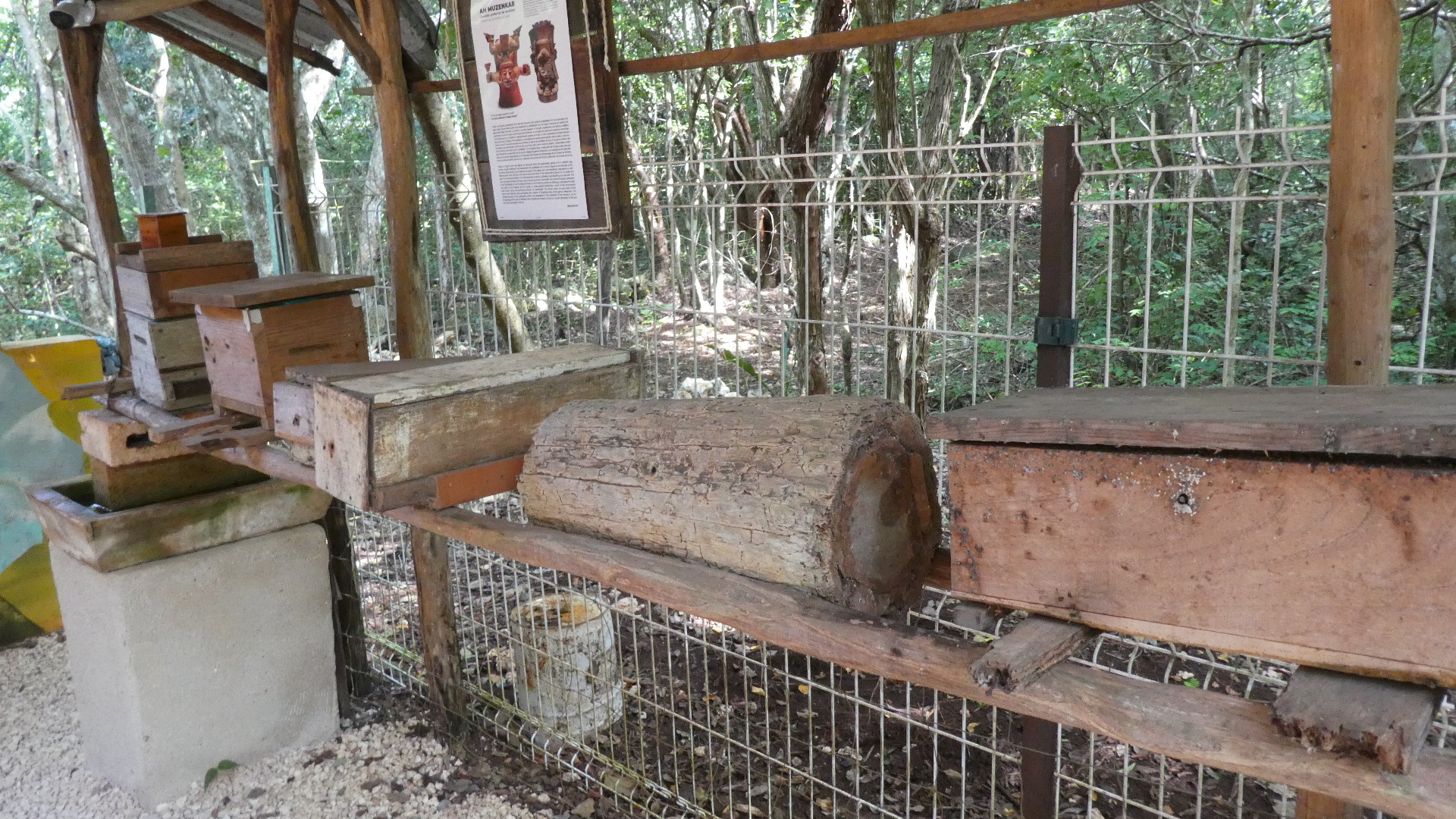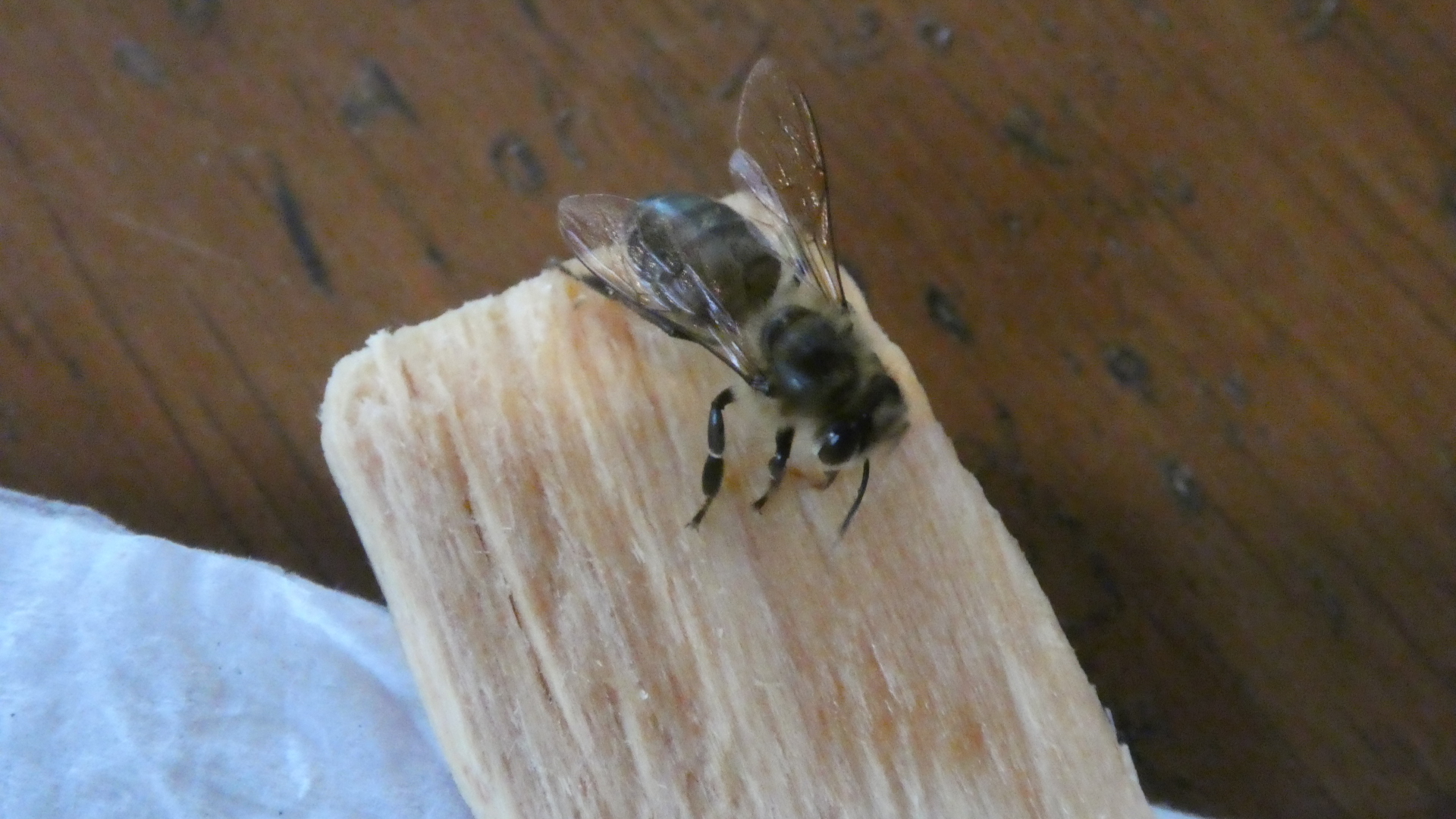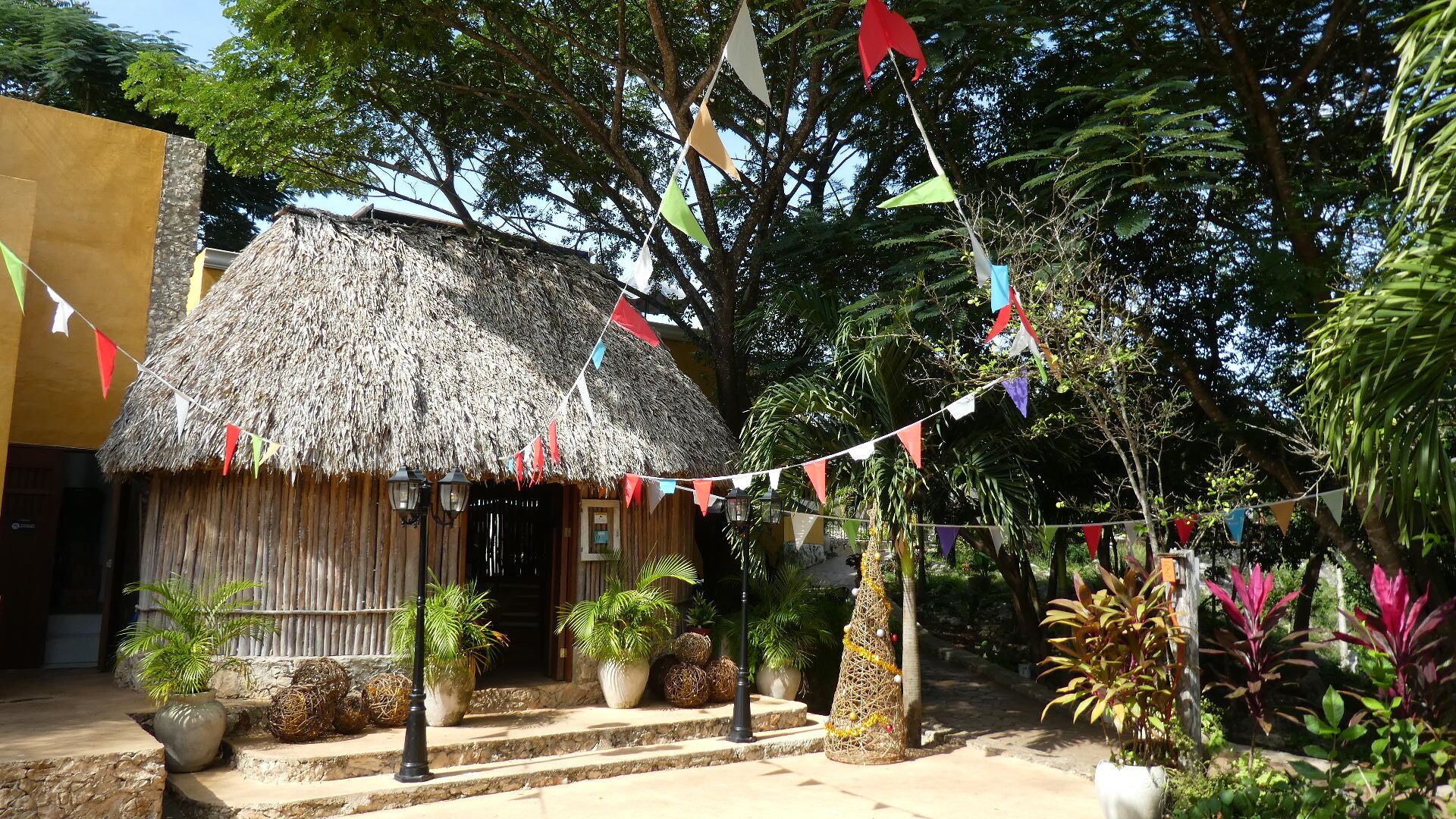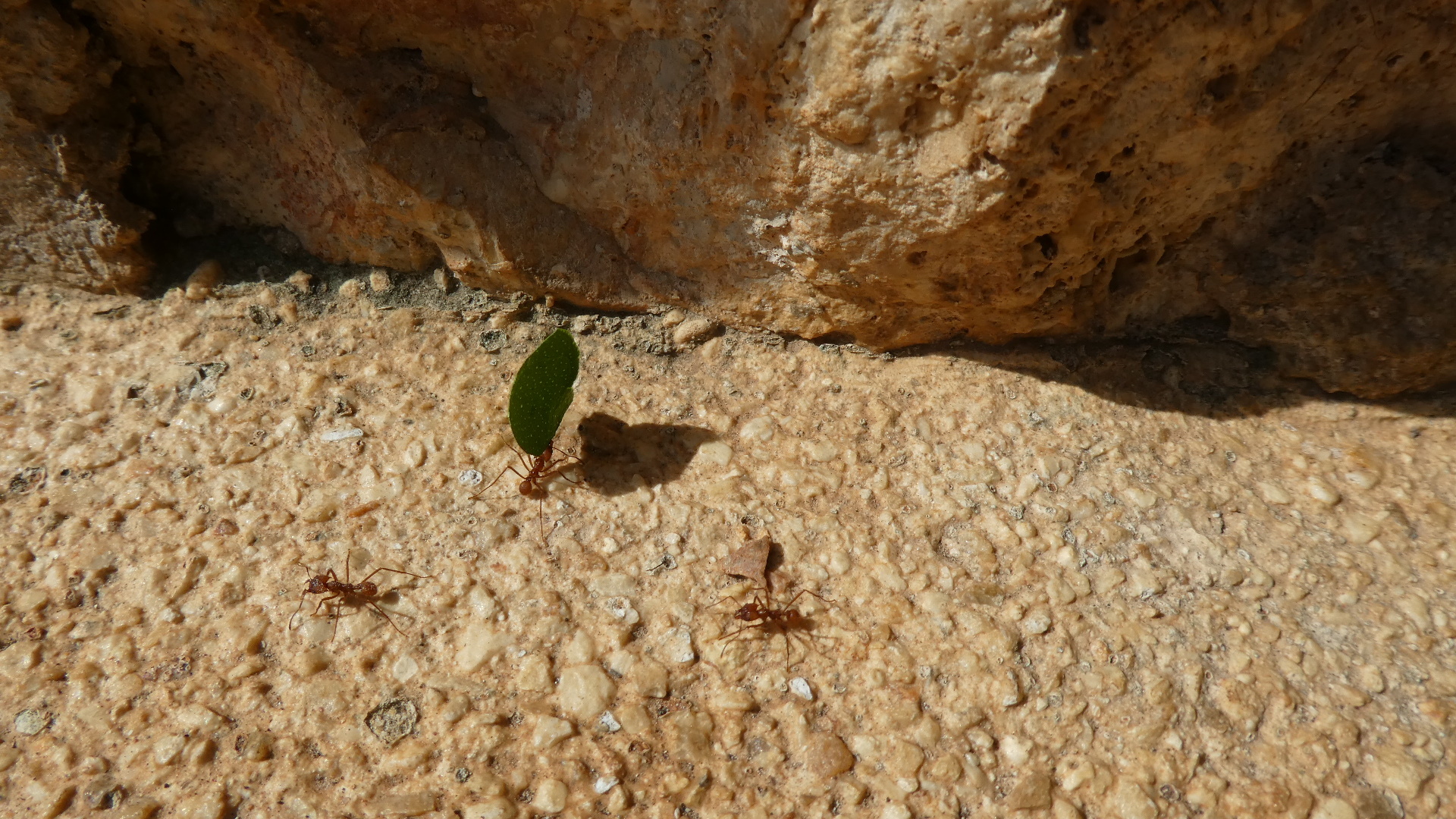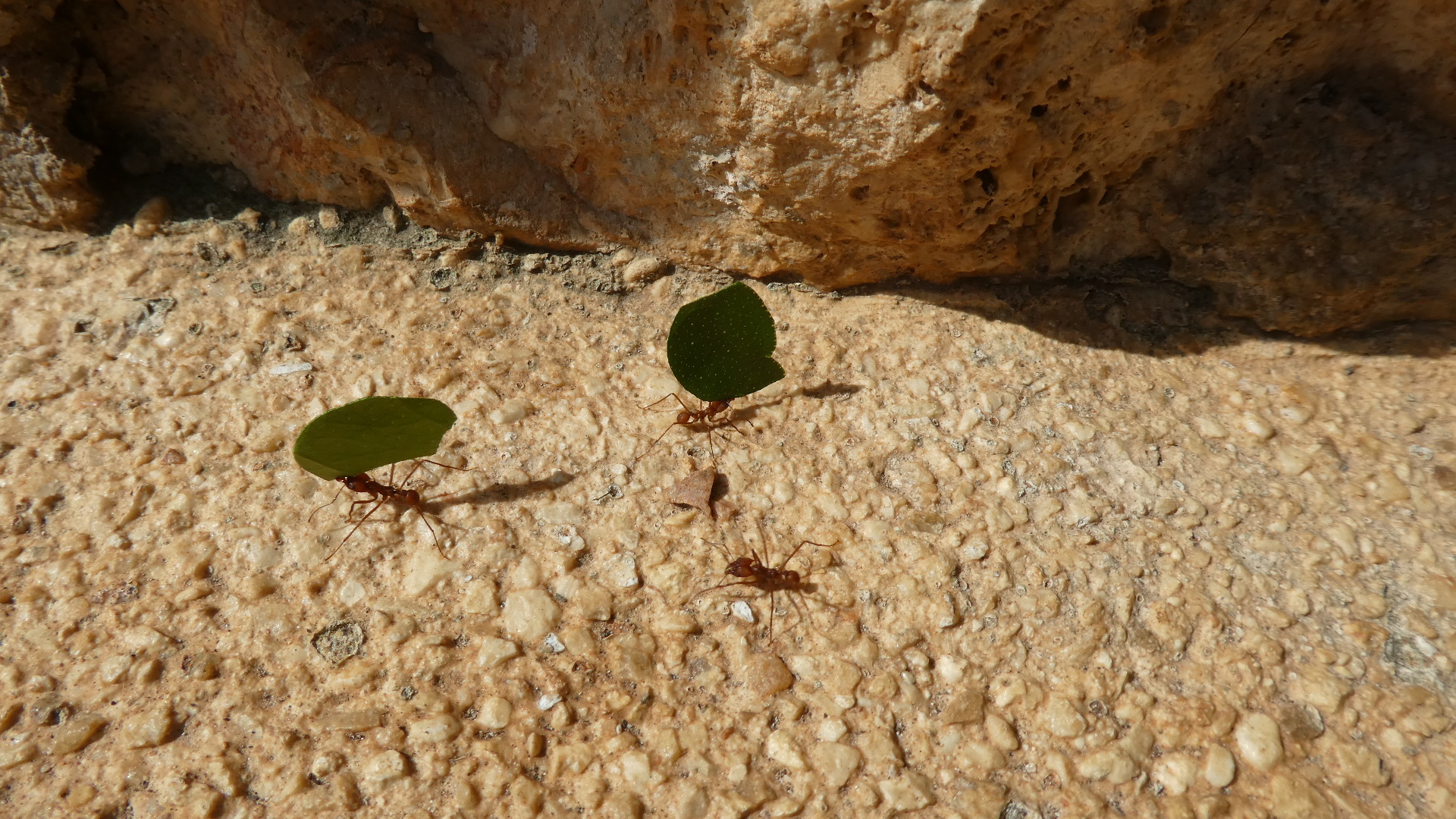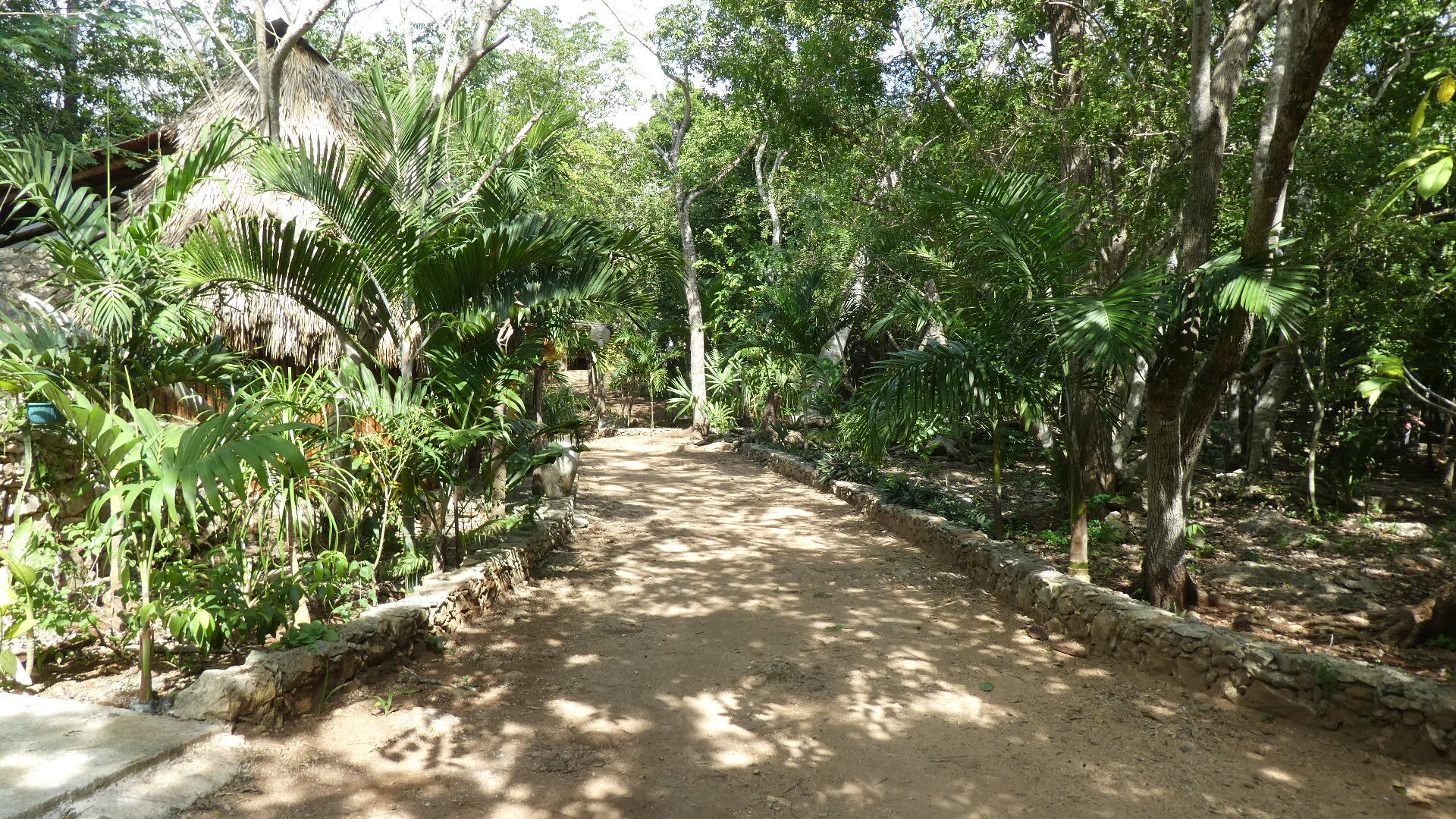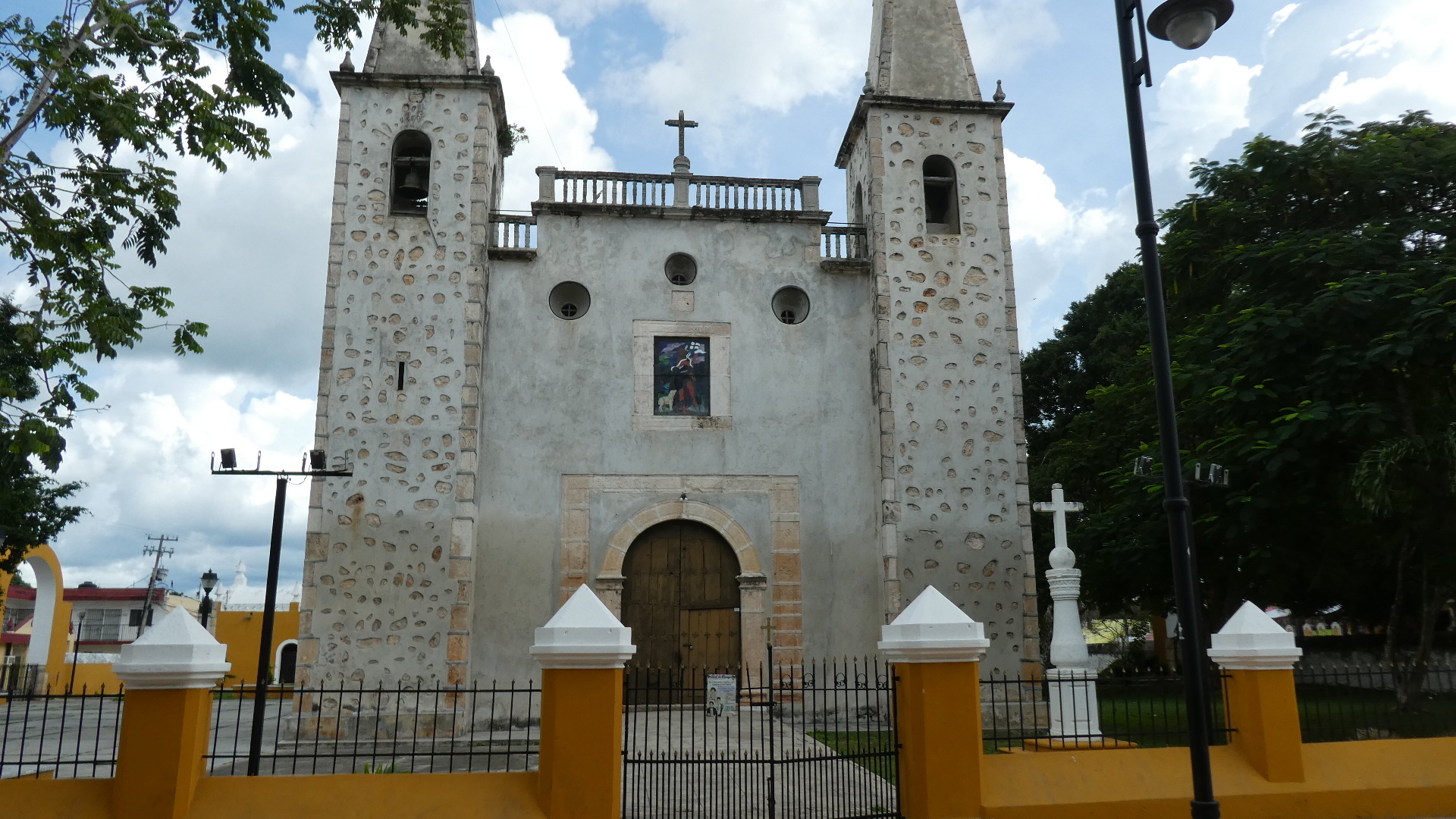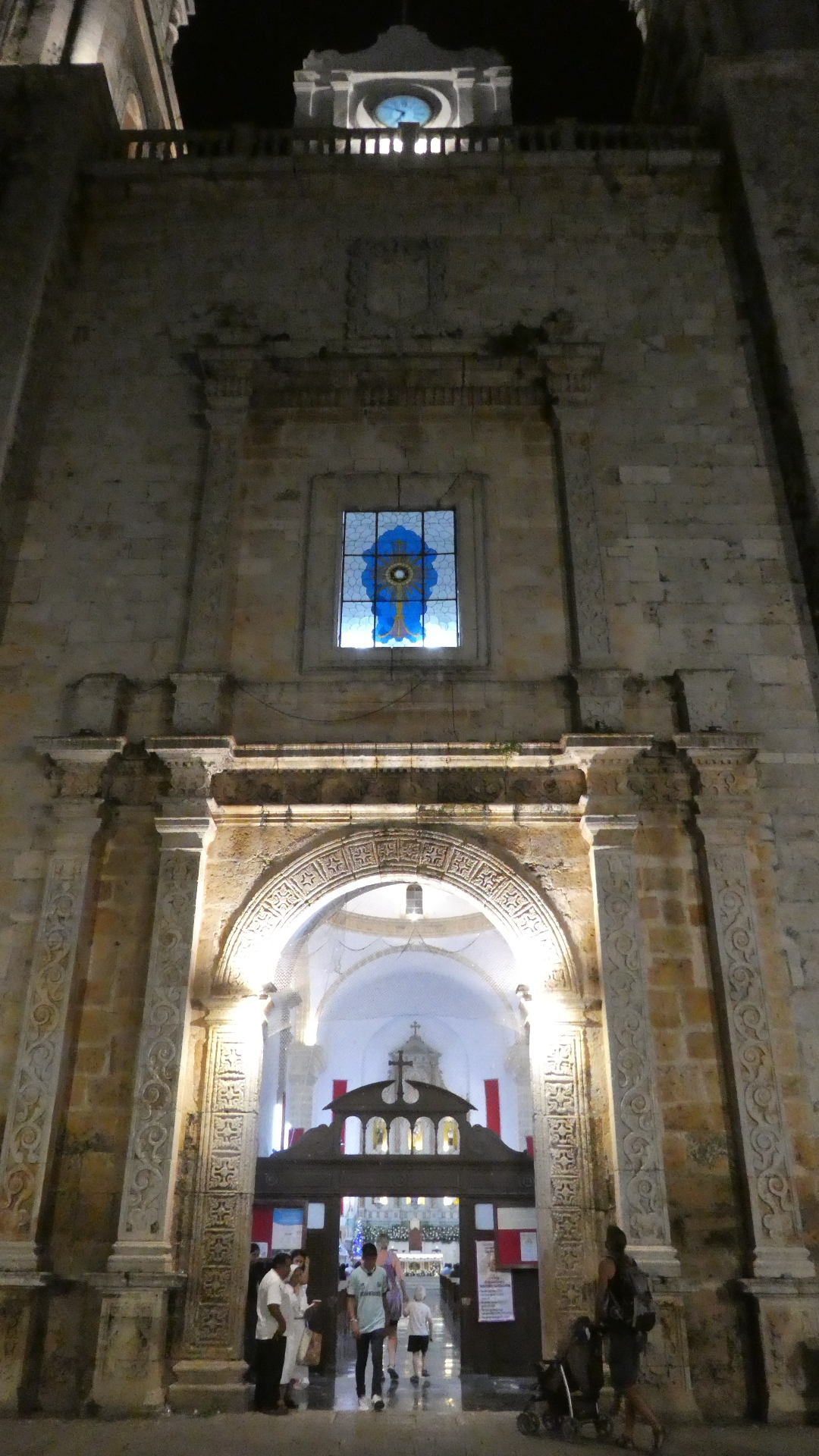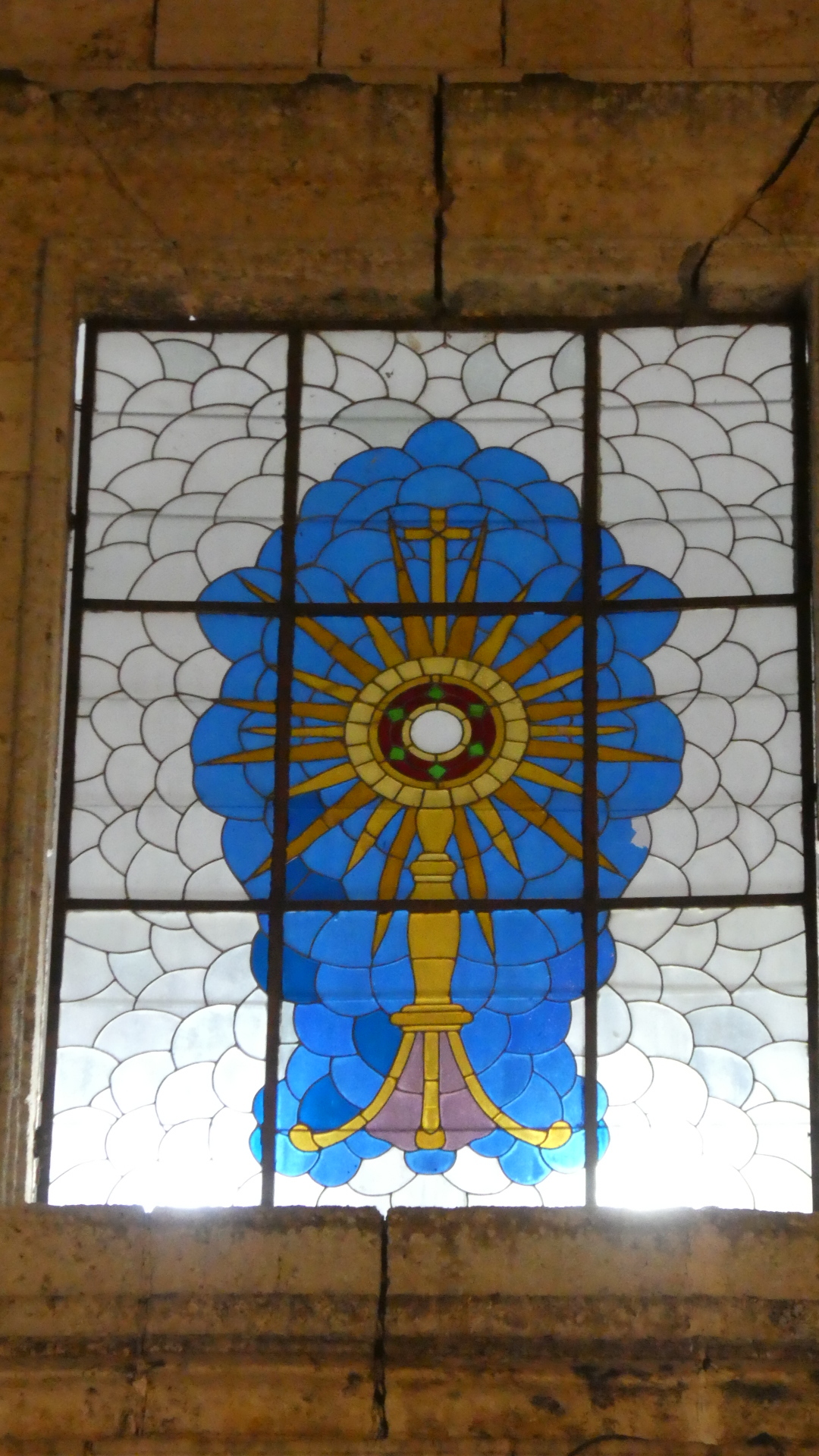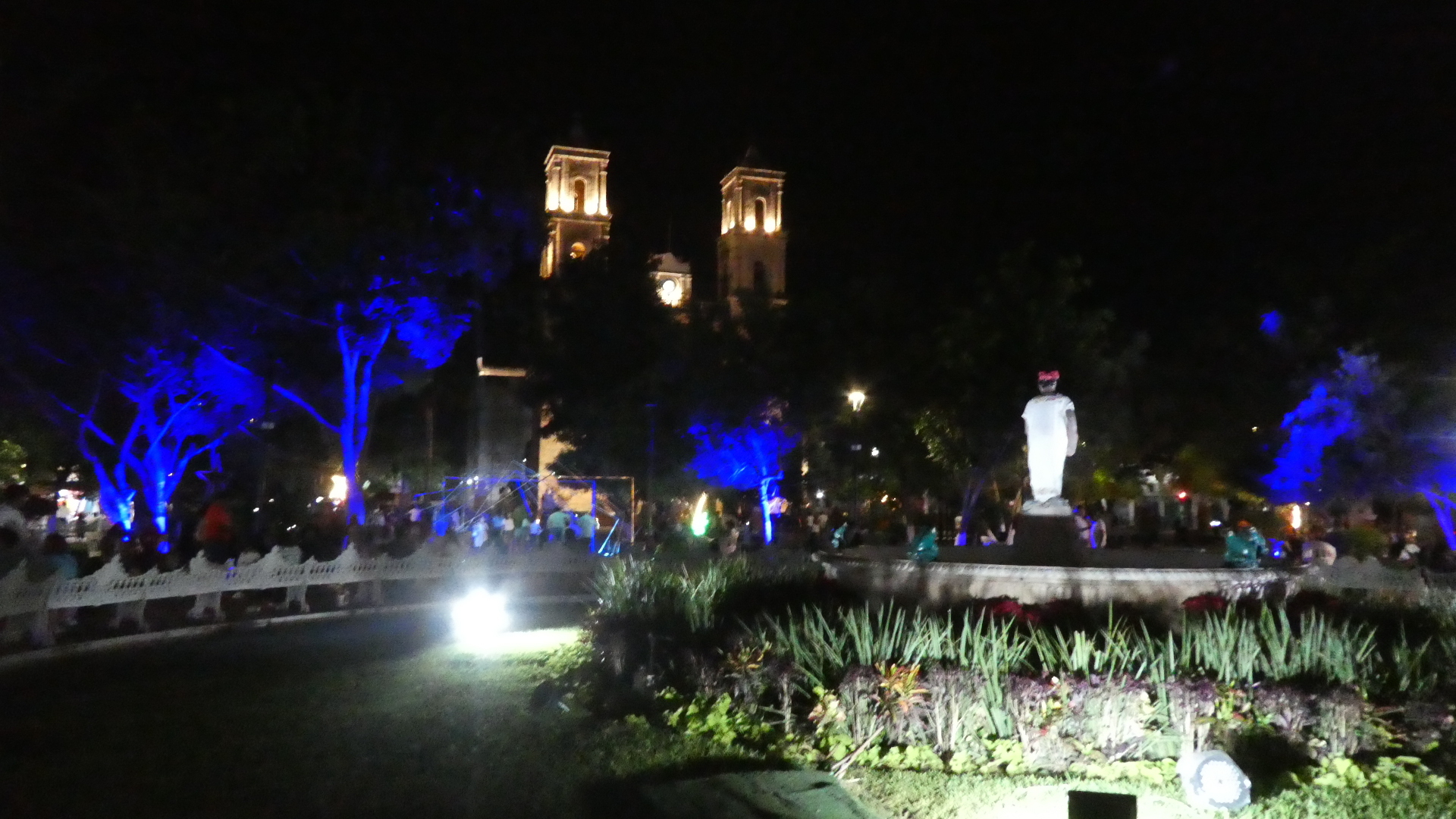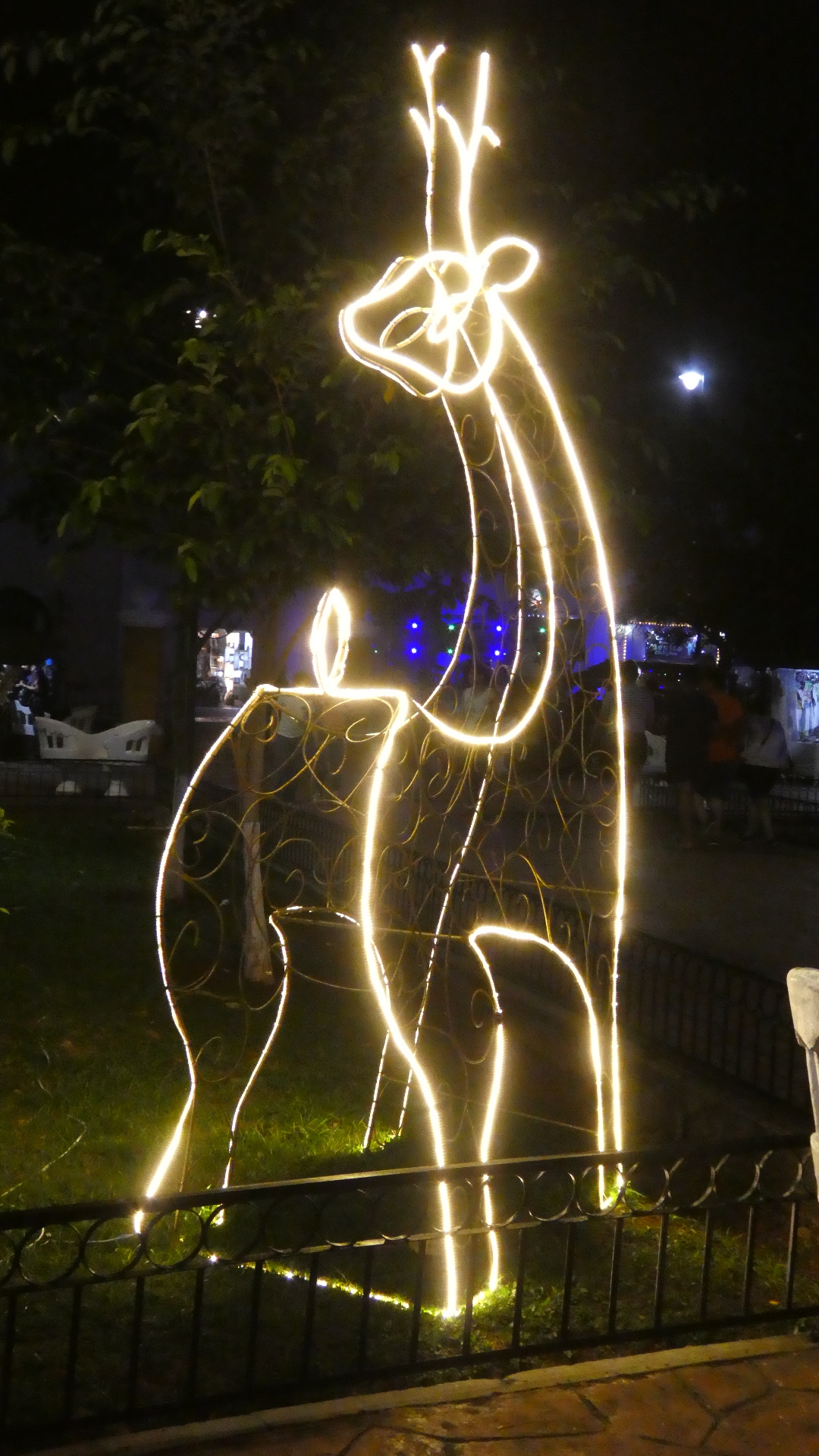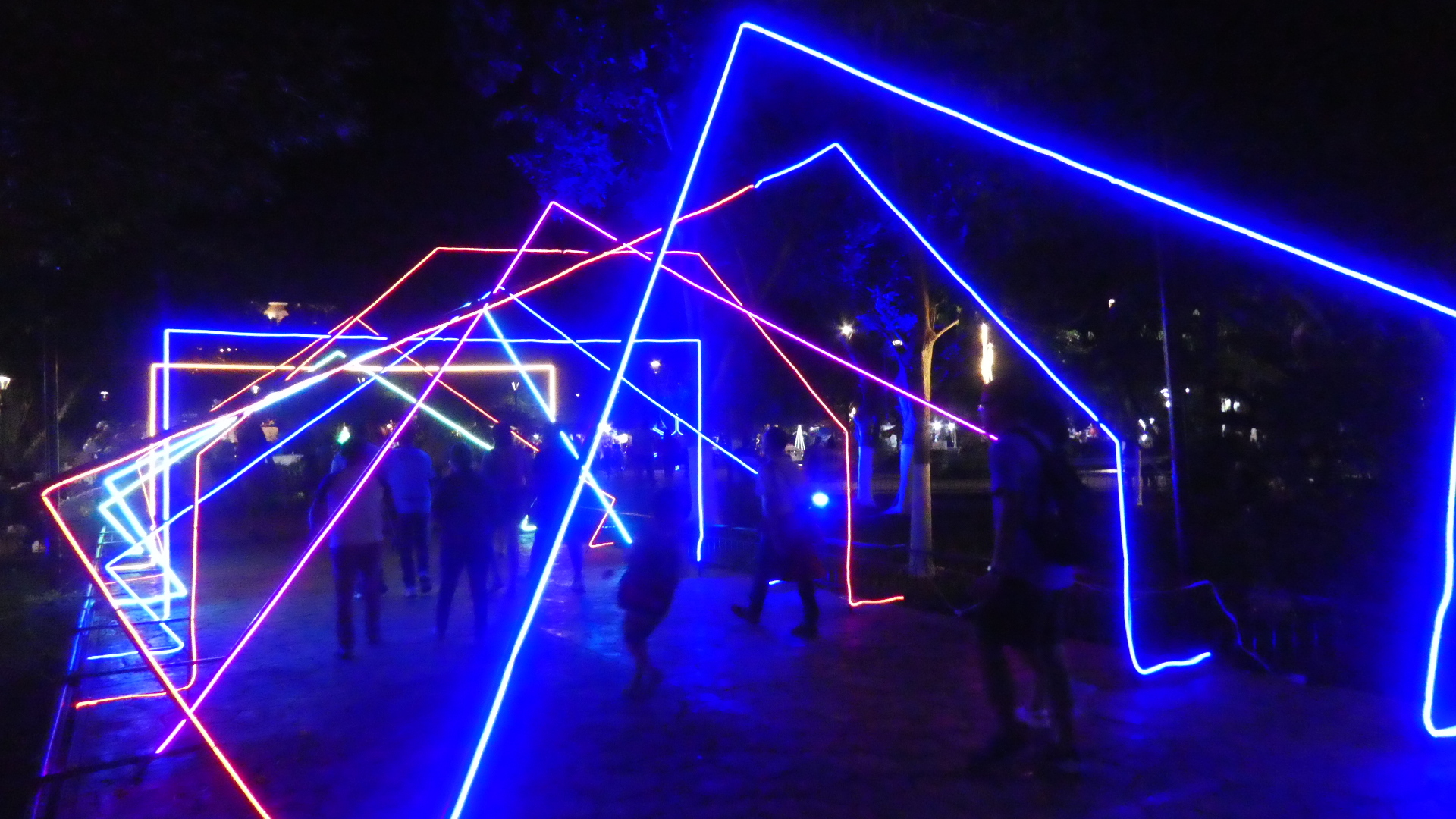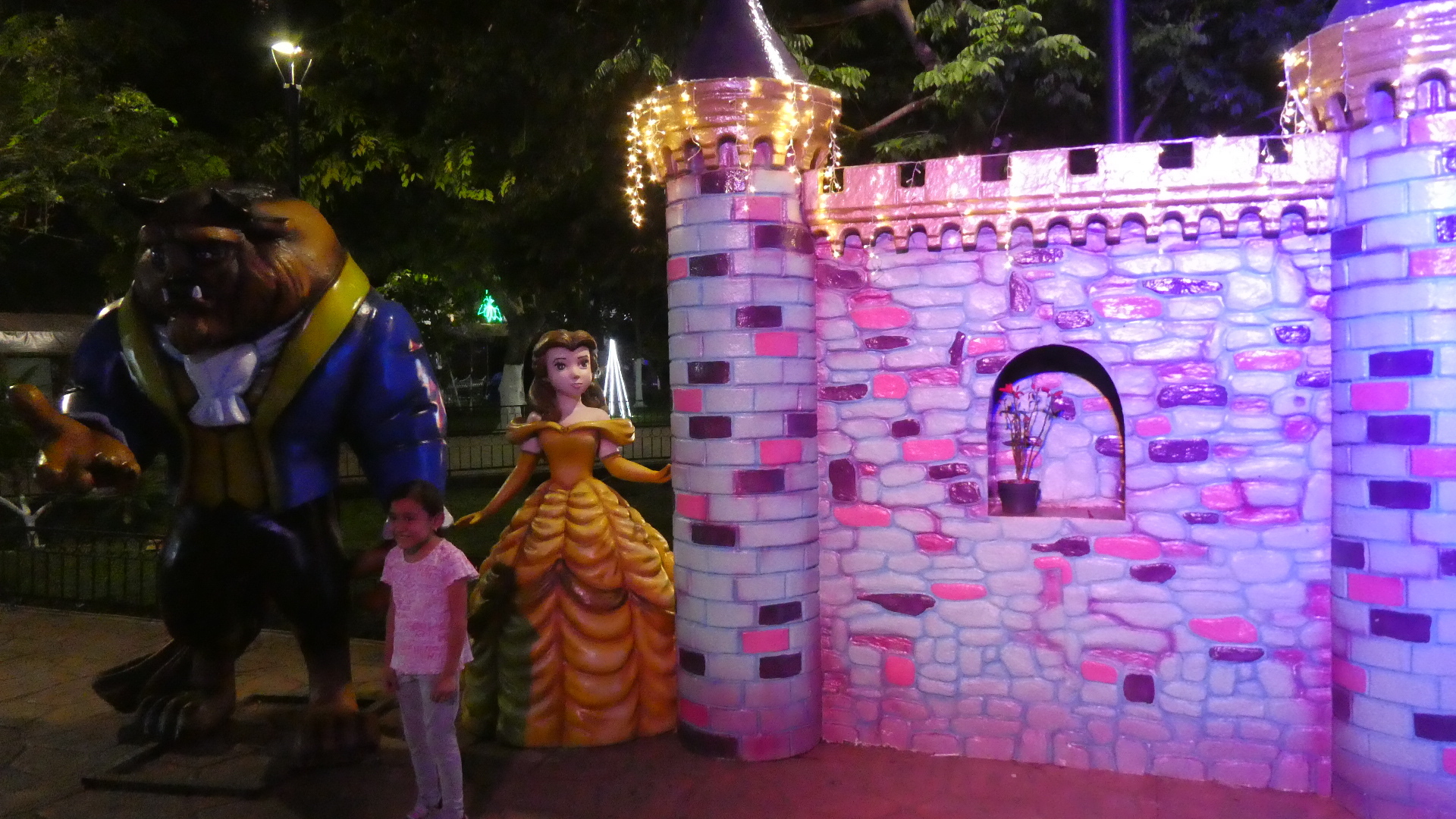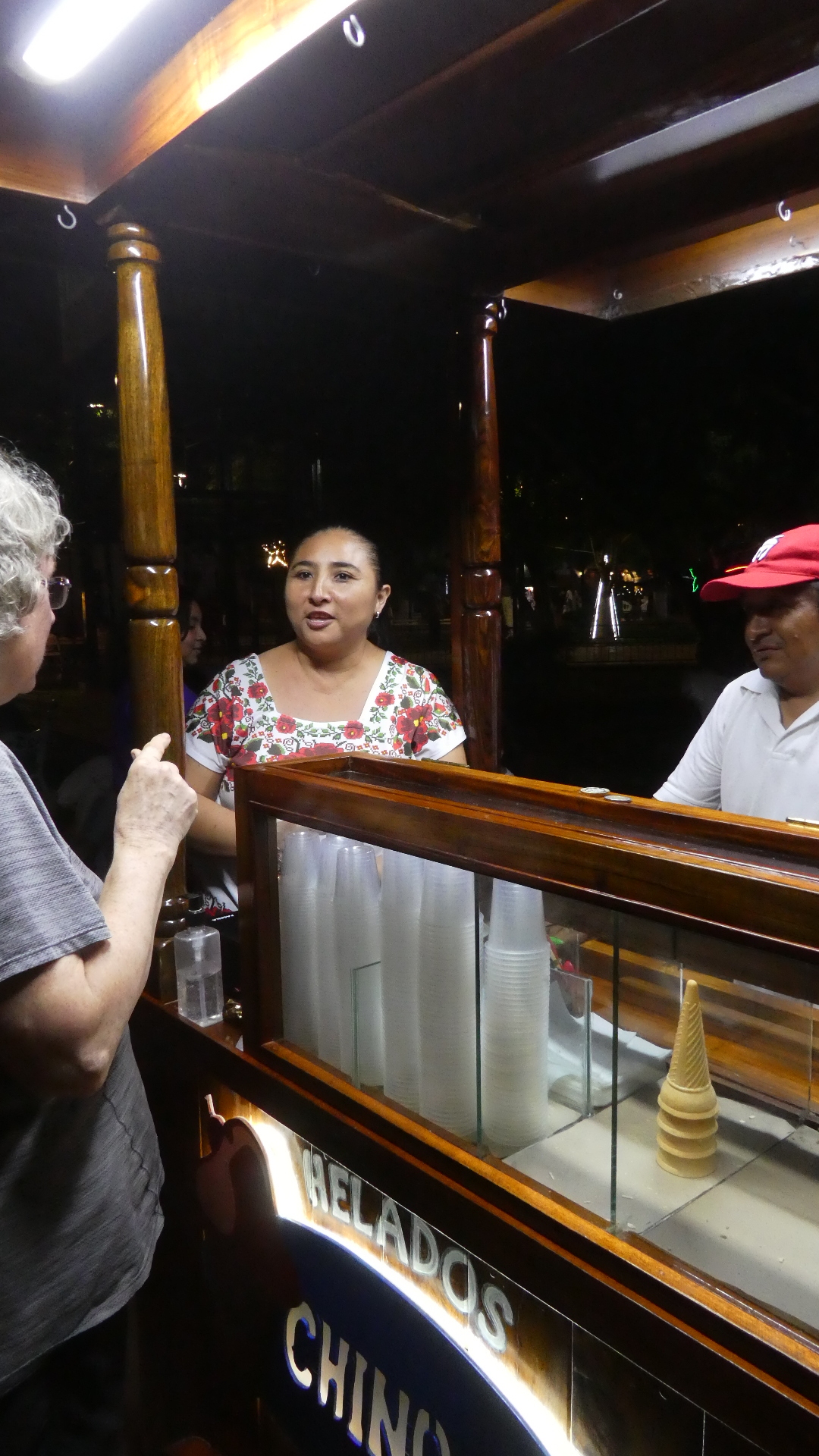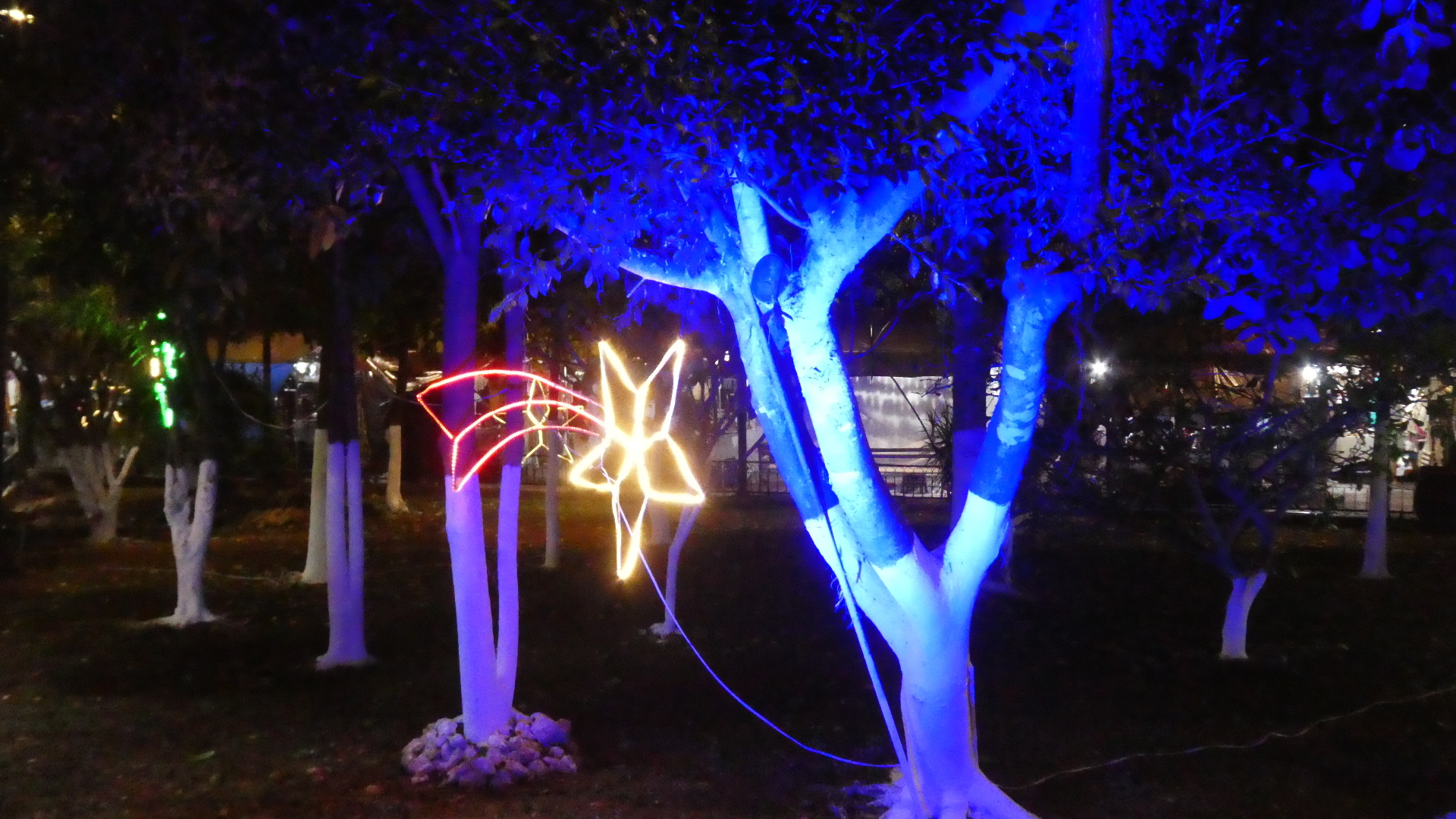December 25, 2023
Day 13: Valladolid - Day 2
A Sweet Christmas Day
| Heart | 0 | Comment | 0 | Link |
A very intriguing feature of the Yucatan peninsula is its varieties of stingless honey bees, and the way the Mayan people have worked with them to produce unique jungle honeys. As we have travelled along, we have seen several Mayan village sites, with advertised either tours of beekeeping or at least with honey sales. For today, Christmas Day, Dodie found a super place not far from town, with a complete tour, honey tasting and sales, and an included restaurant. The place was called Xcopek, Beekeeping Park. Its name comes from the Mayan words "Xkop", which means dry cenote and "Ek", meaning a hive of wasps.
We set off, through what were now the empty streets of town. I assumed that everyone was home, unwrapping their presents. Actually we are not at all sure that gift giving is part of the Christmas culture here. Certainly we have not seen a single reference to or image of Santa Claus. And people can't be gathered with the family around the hearth, because they have no hearths, exactly. But gathering for Christmas Dinner has to be the thing, right? Anyway, we saw almost no one out and about.
The Bee Park turned out to be extremely close to town, yet the site was extremely lush and seemed very big.
The reception included a small bee museum, with a small and random collection of local bee stuff, but all very interesting.
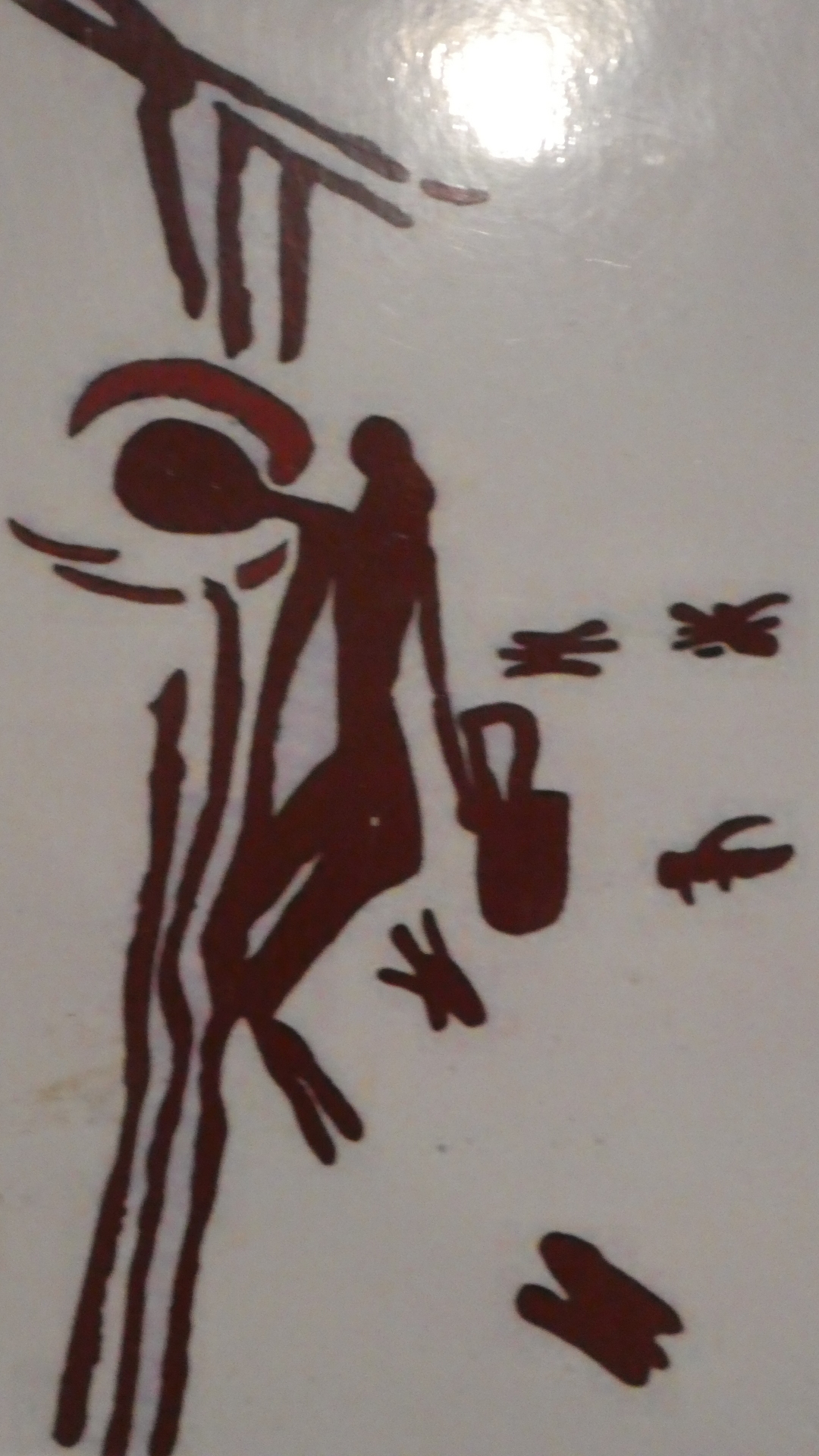
| Heart | 1 | Comment | 0 | Link |
As we were to be shown on the tour, the tiny local bees produce only a little honey, that is extracted with syringes. This accounts for the high price. The price on the bottles in the photo below is about 5x more per gram than commercial honey back home. That does not seem at all crazy to me.
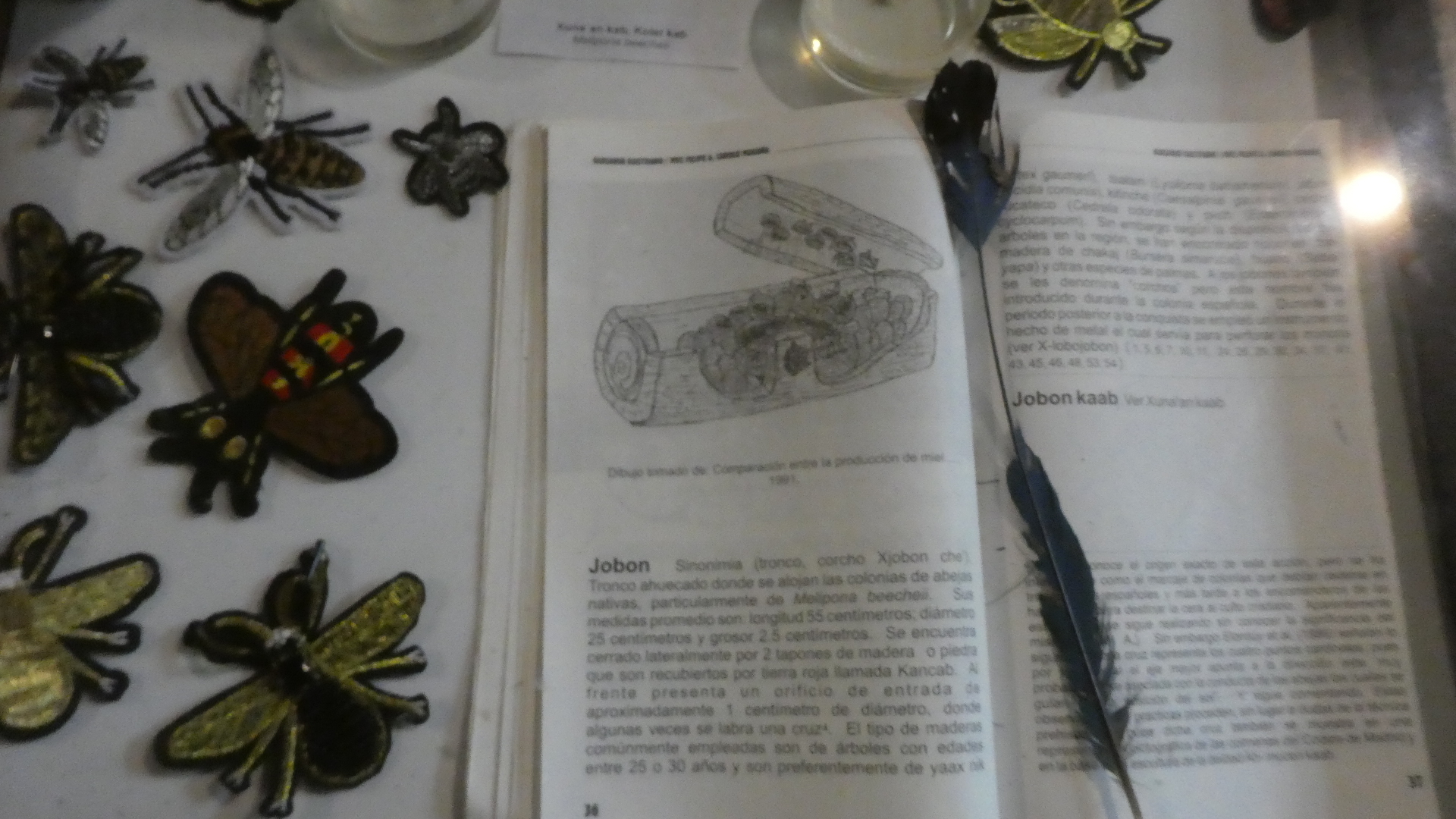
| Heart | 1 | Comment | 0 | Link |
There are 16 or 17 native stingless bee species in Yucatan, and 400 in the world's tropical zones. At Xcopek they have four species, but as everywhere in Yucatan, the major one is the Melipona. There is of course lots of info on this in the internet. This one random site, from a different tour, seemed to have a good short summary.
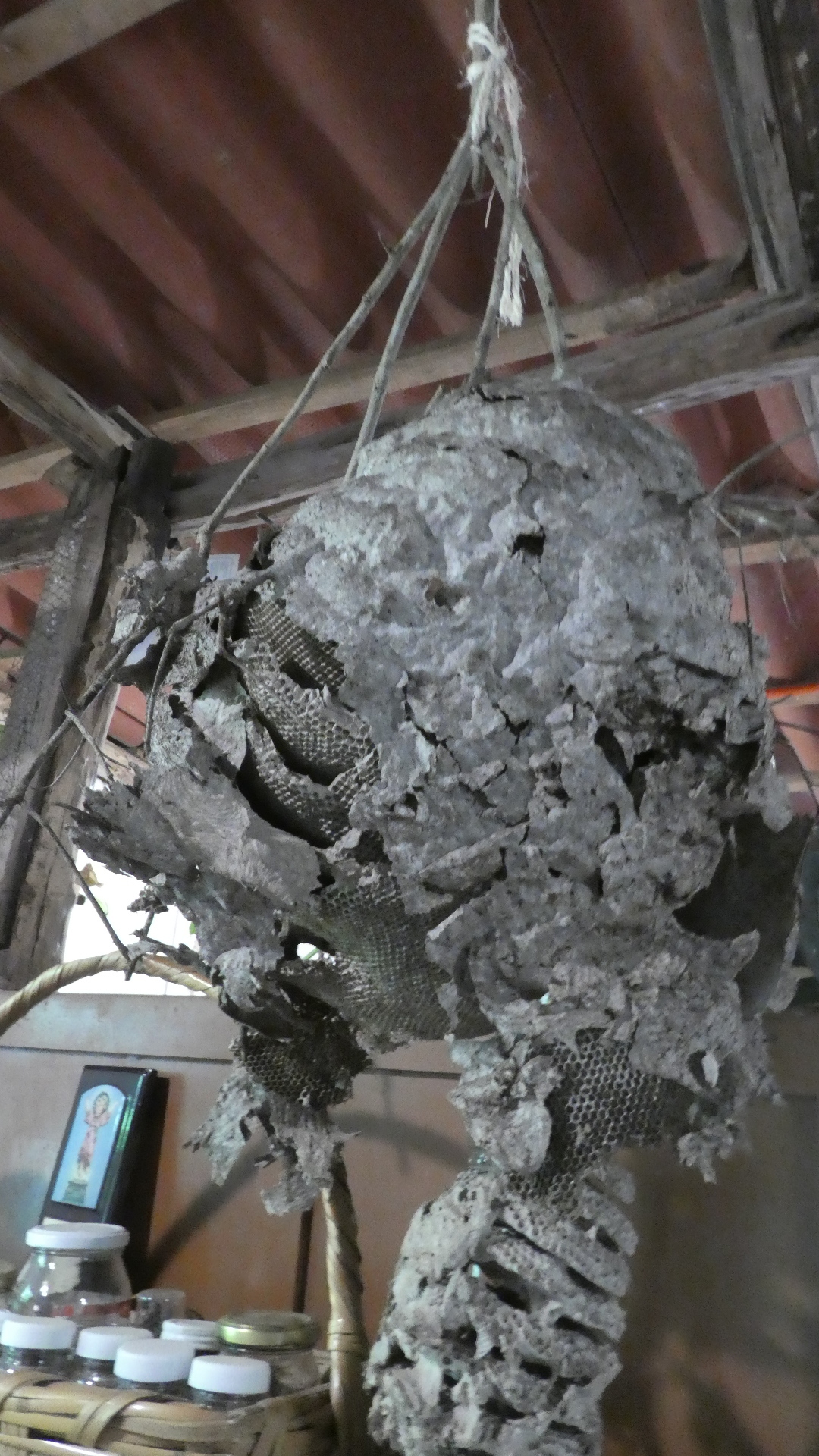
| Heart | 0 | Comment | 0 | Link |
We went out to meet our guide, Eduardo, by these bee themed love seats.
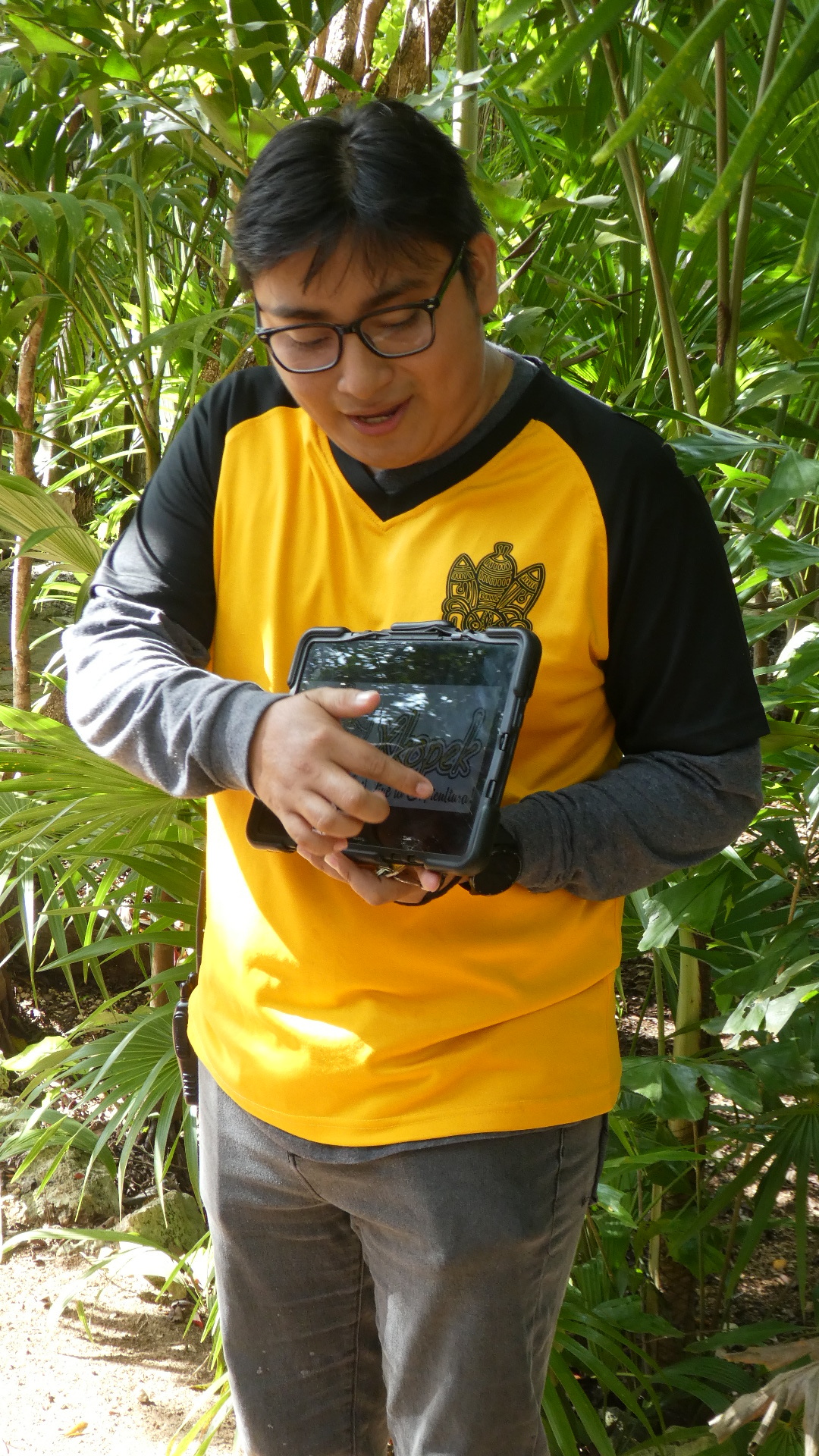
| Heart | 2 | Comment | 0 | Link |
As hinted in the name of the park, the tour led down into an open, dry cenote. Our group had a mix of people, both old and young, and we were glad that Eduardo went reasonably slowly.
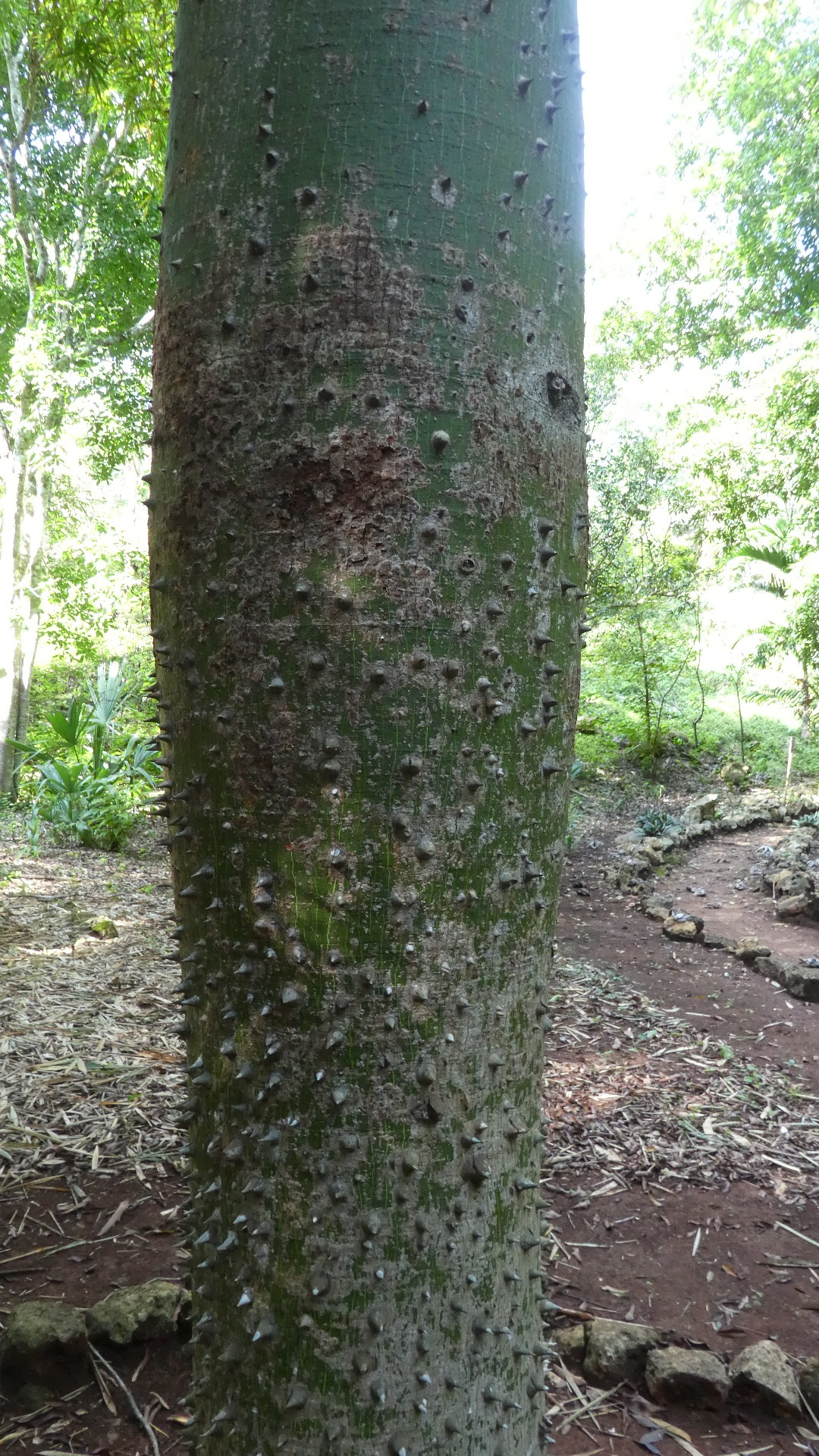
| Heart | 1 | Comment | 0 | Link |
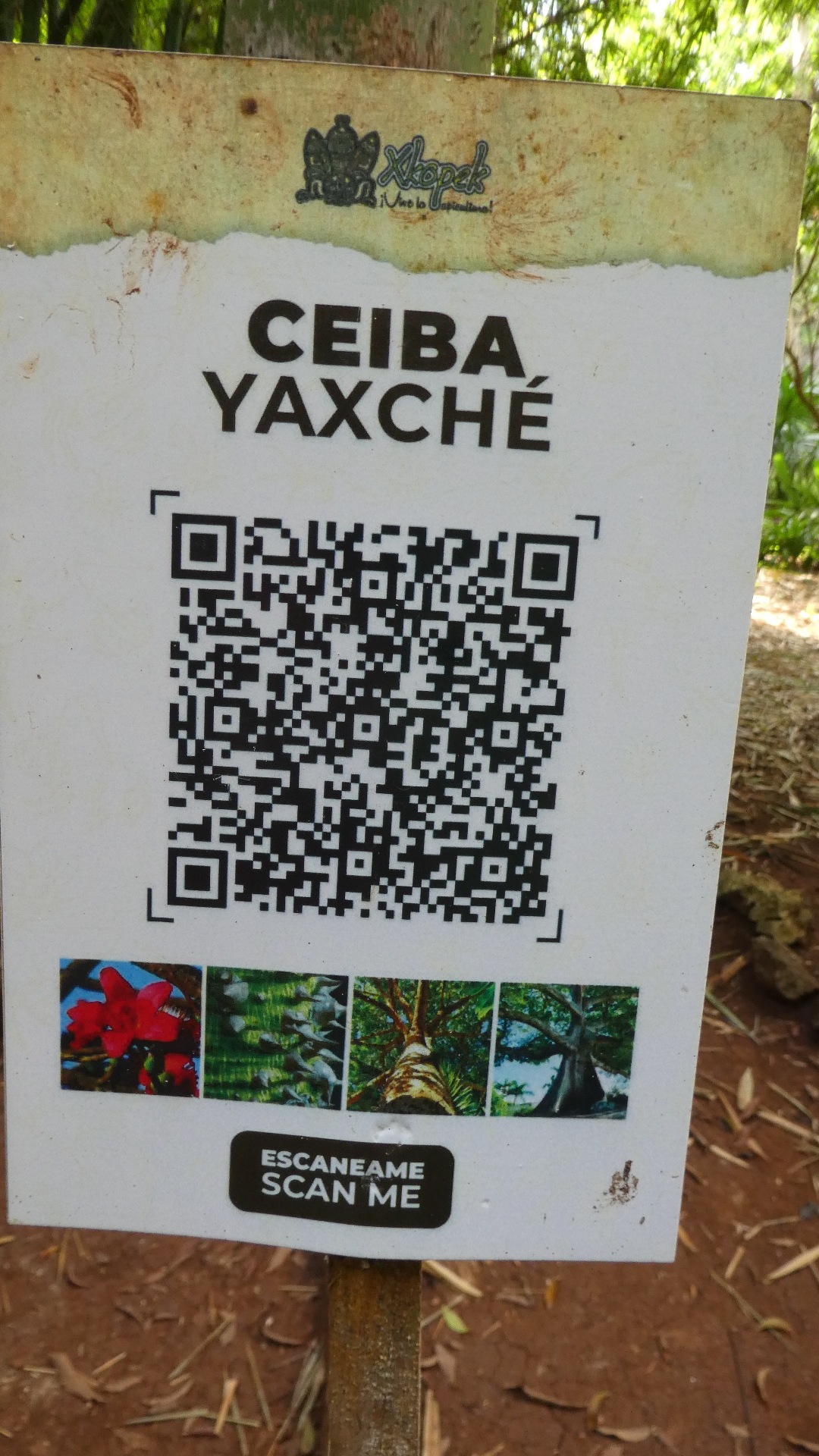
| Heart | 0 | Comment | 0 | Link |
The descending trail ended in an open sided cave, where Eduardo pointed out the spots occupied by different kinds of bees. These required a bit of an attitude adjustment from what we are used to, because the spots were small holes in logs, or something hard to see on the roof of the cave. For example, in second photo below, the hanging bit of root is the home of the lemon bee, which is the only one to steal pollen from other bees.
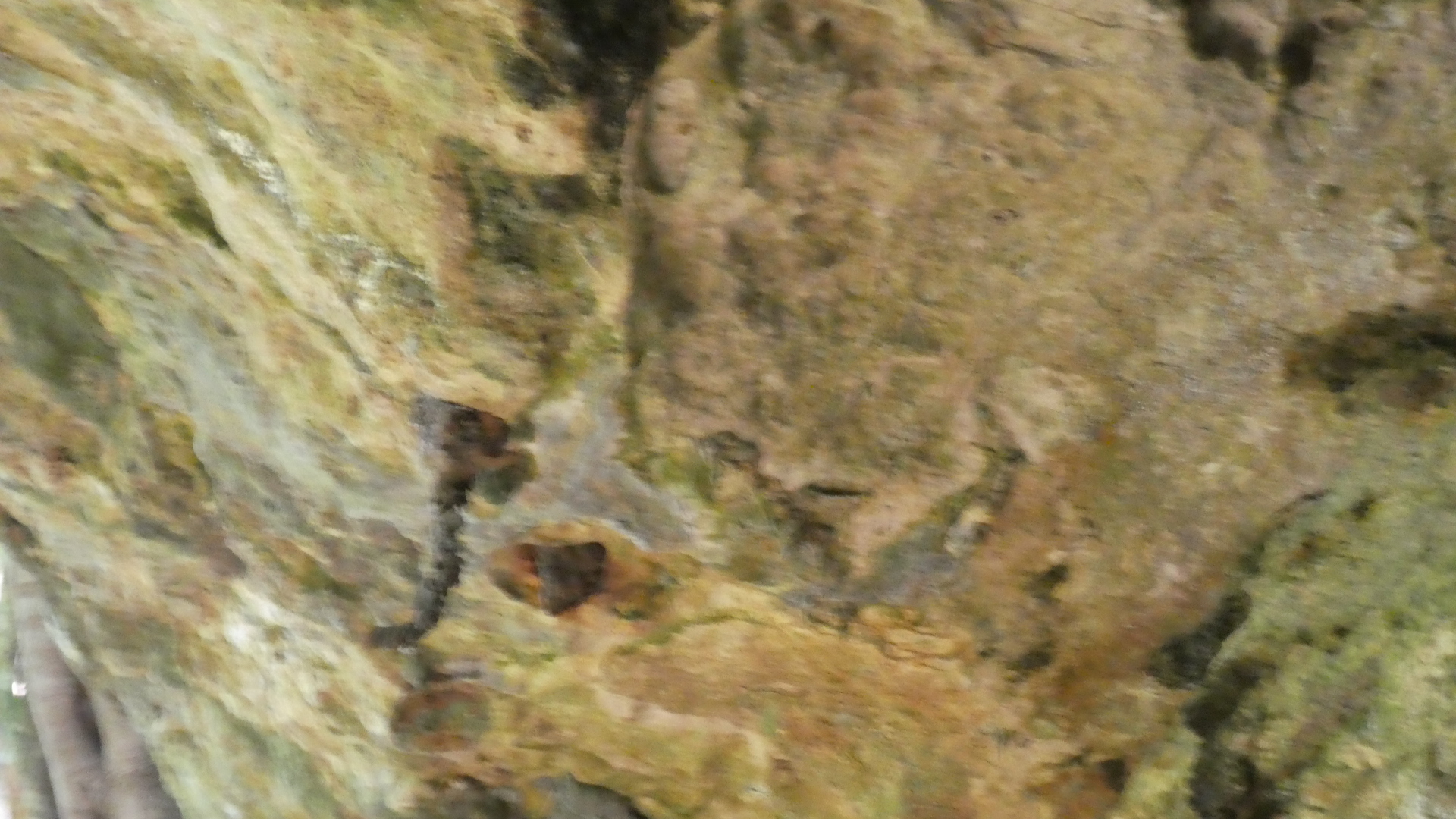
| Heart | 0 | Comment | 0 | Link |
Below you see some homes other, non Melipona, bees. I rather lost track of what I was looking at. But the general theme is of small entrances to small bits of old logs.
We ascended from the cave and visited the "major production" area, which was an enclosure with about two dozen non uniform shaped logs or boxes on ledges. Here we had a moderate number of the little bees flying around and going in and out. The flowering season here begins at the end of December, so perhaps they do not find much to do out there.
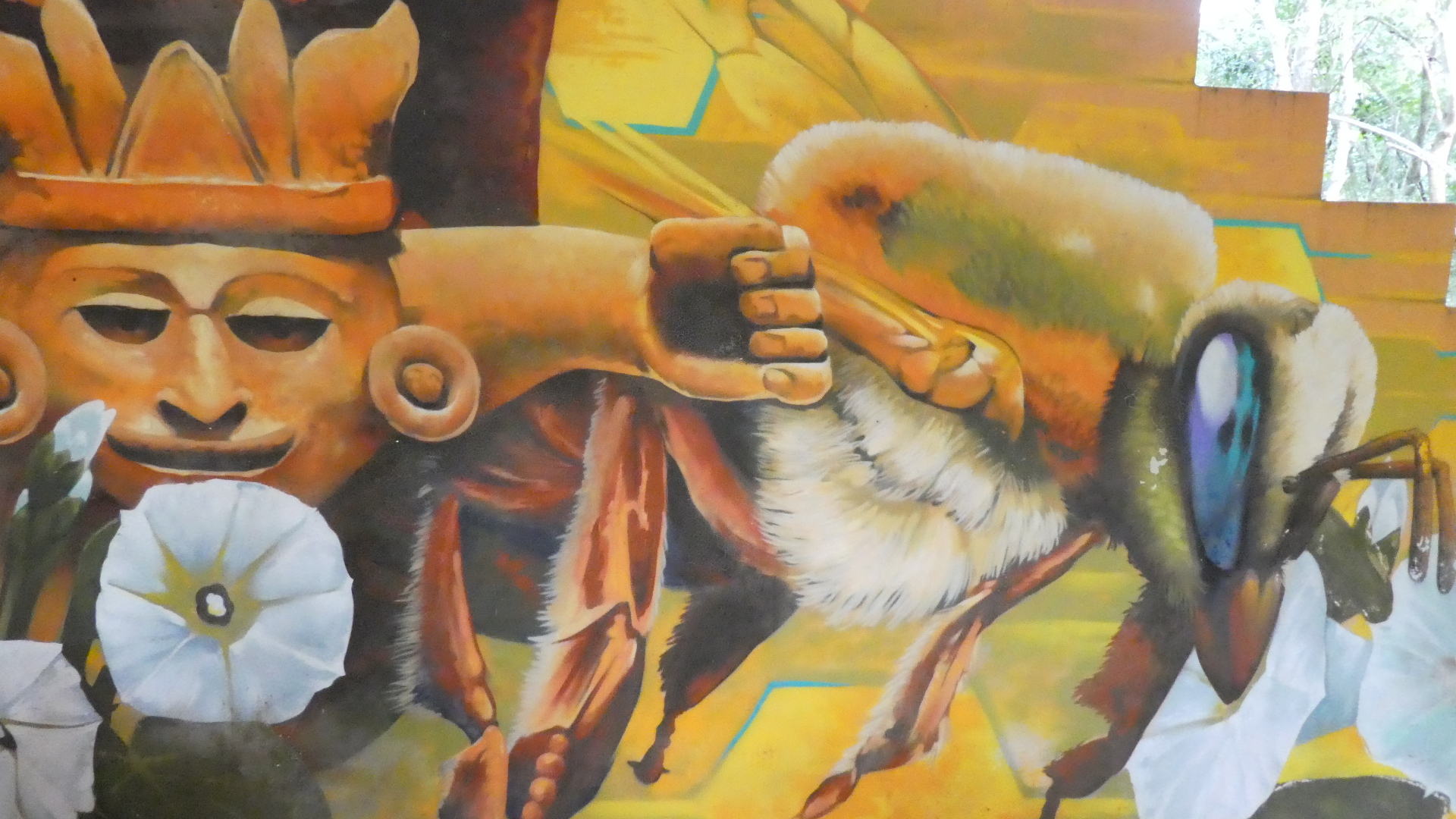
| Heart | 1 | Comment | 0 | Link |
From the bee yard we were led to a long table where each member of the group had a bowl curiously refreshing honey water. This was meant, we expect, to cleanse the palate. Eduardo then brought a dizzying array of honeys and honey preparations to try. We really can not recall what it all was, but in most cases the honeys were introduced as medicinally good for various parts of the body. Obviously, the Mayans were not using them to bake muffins, so medicinal uses were probably the main thing.
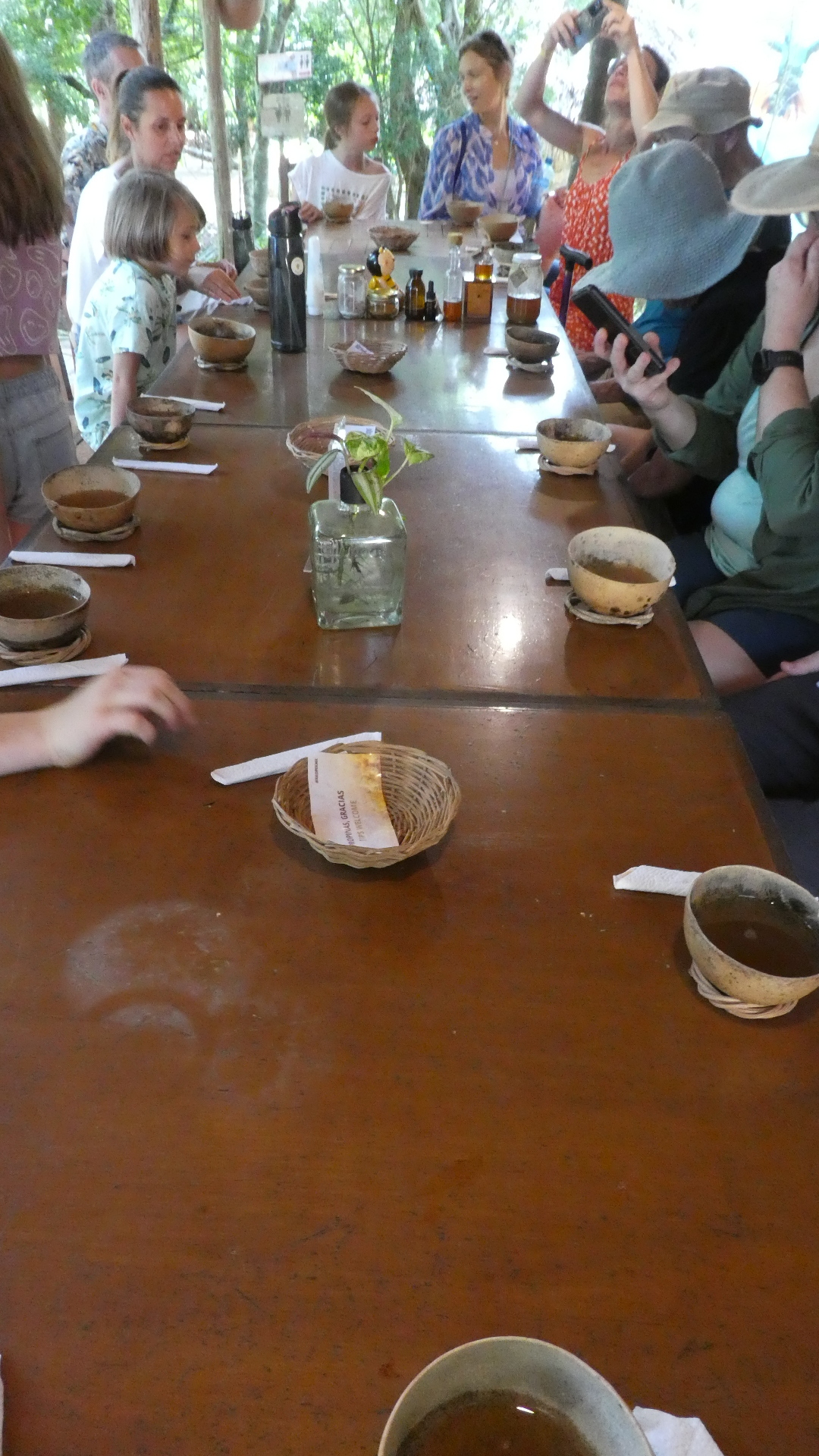
| Heart | 1 | Comment | 0 | Link |
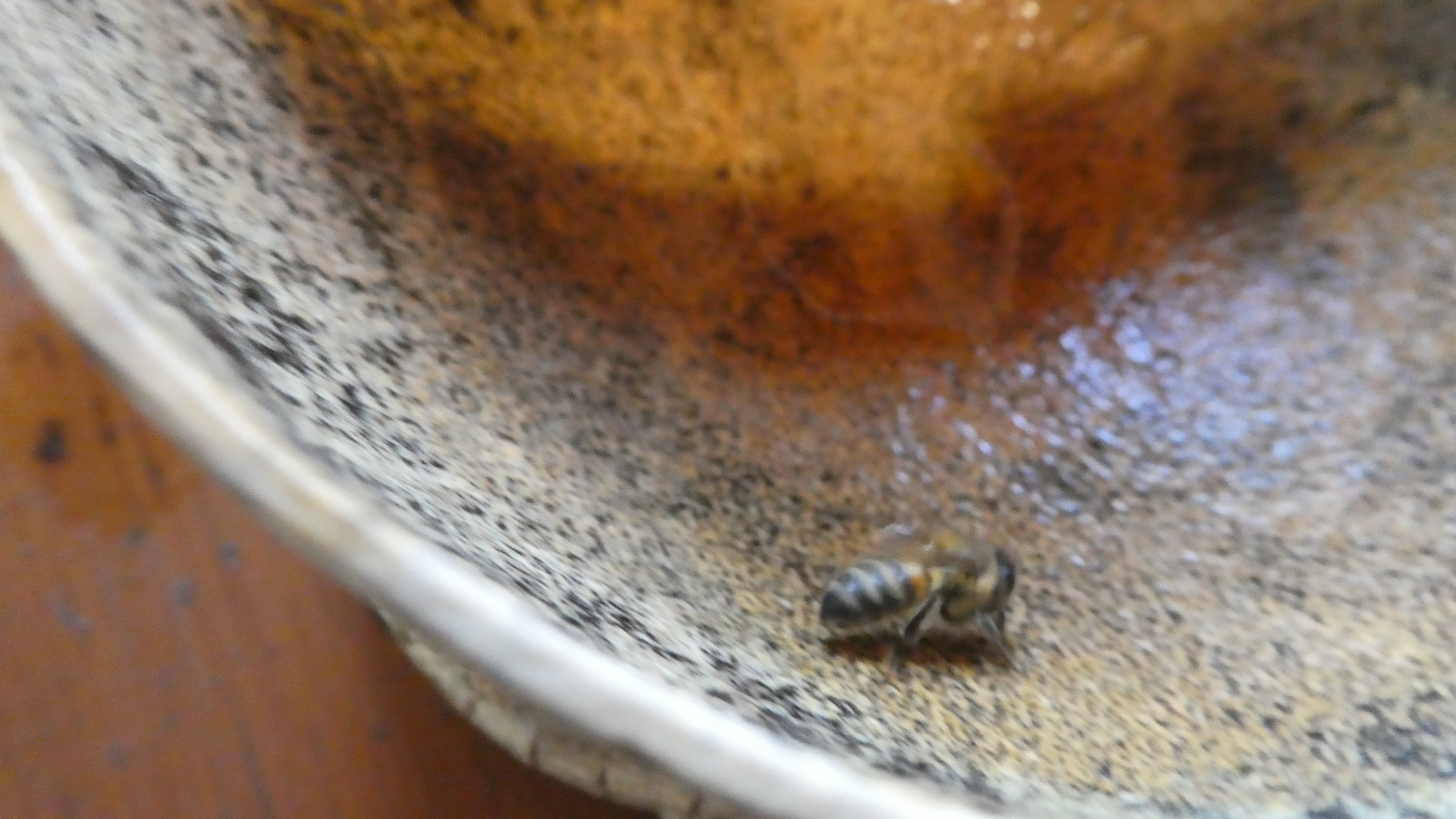
| Heart | 0 | Comment | 0 | Link |
After the tasting, we wandered back through the grounds to the restaurant, where we had what was to be our Christmas Dinner.
Just be the restaurant entrance we encountered leaf cutter ants, on the job.
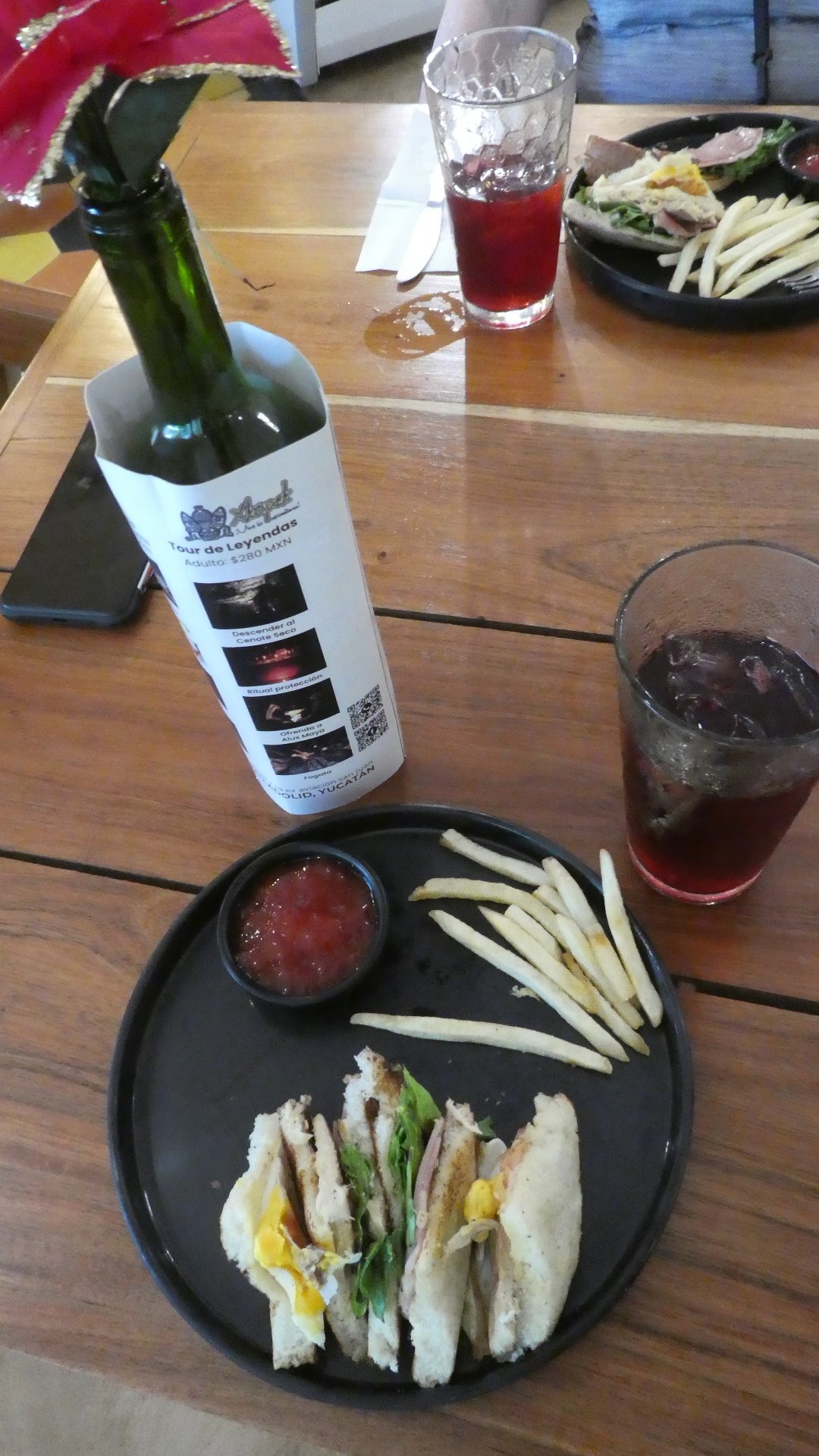
| Heart | 2 | Comment | 0 | Link |
Back through the wonderful grounds, and we hopped our bikes for home.
We passed the church San Juan de Dios along the way. Again, the stained glass at the front needs some interpretation.
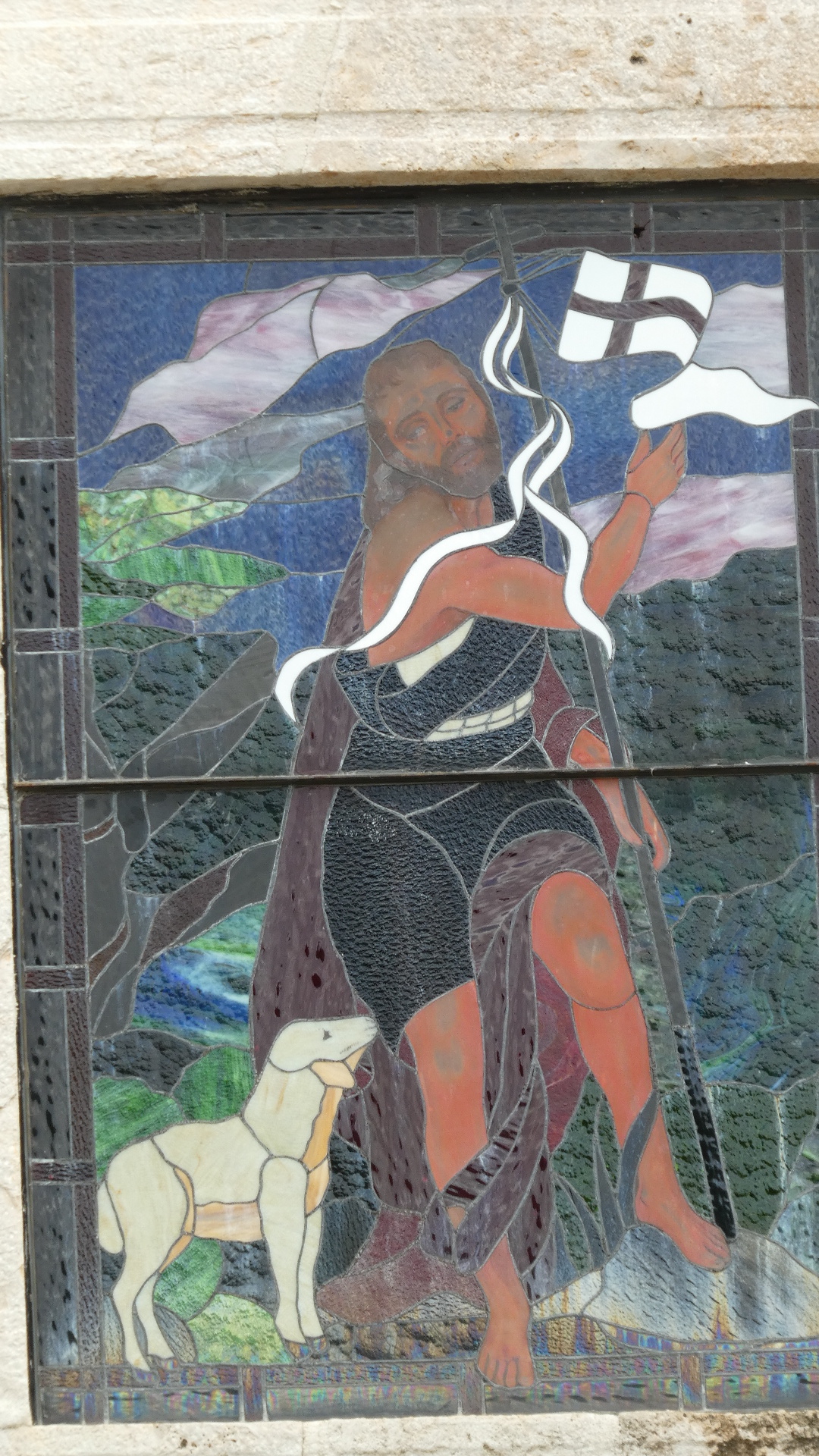
| Heart | 0 | Comment | 2 | Link |
This one had me stumped, but I found him in the end. Too many saints named John, I guess. He was a Portuguese shepherd who became a mercenary fighting against the Turks, among others (see the sheep and the banner). After a religious vision or two he ended up founding an order of hospitalier monks who have the vocation of tending to the care of the needy and the pope(!). Many hospitals were built by and maintained by the order. Question: is there a nearby catholic hospital? Anyway he died about the time that the Spanish were colonizing the Yucatán,and since he died in Spain this might be the reason he is found here. Supposedly he got the epithet « of god » in one of his visions, and he went around calling himself that.
His tomb is guarded by his very own knights, a recently founded group dedicated to spreading his message, whatever that was/is. (Kill Turks, heal the sick?)
More than you wanted to know, no doubt, but there you are.
Cheers,
Keith
1 year ago
There was no hospital that we saw, just a small clinic.
As far as we could see, the church also had no name or description out front. But Google Lens yielded all sorts of images of it. These did not yield your info but tended to be things like a car rental using the church as a backdrop.
1 year ago
Update: We went to the square again for a look and to find a coconut ice cream. The church, which is on the way, was very lit up and festive looking.
In the square more of the lights had been turned on. Among these was a reindeer. Since there is no Santa around, I assume the reindeer was moonlighting.
Although Santa was absent, we did have Beauty and the Beast.It was a popular photo stop for little kids.
The main reason for going to the square this time was for coconut ice cream. But the coconut stand was closed. The people pictured below had vanilla - OK. Unfortunately for poor Dodie, I got the last cone. It must have been a good night for the vendors. They definitely were very cheery.
Ok, we'll sign off finally, from the square in Valladolid, Yucatan!
Today's ride: 7 km (4 miles)
Total: 440 km (273 miles)
| Rate this entry's writing | Heart | 7 |
| Comment on this entry | Comment | 0 |
